Entre 1963 et 1982, ce sont près de 2.150 mineurs réunionnais, âgés de quelques mois ou quasiment majeurs, qui sont arrivés en métropole, dans des départements frappés par l'exode rural. A cette époque, les gouvernements successifs comme celui dirigé par Michel Debré s'inquiètent d'une natalité galopante et des risques de contestation économique et sociale. Sans compter la misère dans laquelle vivent une grande partie des Réunionnais.
Cinquante ans après, ils ont encore du mal à digérer leur passé, leur histoire et leur départ de la Réunion pour de nouveaux foyers familles de la métropole. Ceux que l'on appelle communément les "enfants de la Creuse" ne savent même pas comment qualifier leur situation : est-ce un déracinement, un arrachement, une transplantation voire un enlèvement? Autant d'histoires singulières et de sensibilités à prendre en compte par une commission d'experts nommée par le ministère des Outre-mer pour retracer les parcours et les conséquences de ces migrations. Leur rapport sera rendu très prochainement.
En 2014, l'Assemblée nationale avait déjà reconnu la responsabilité morale de l'État dans ce transfert d'enfants. Certains ont entrepris un voyage - réparateur ? - vers l'île en espérant y trouver plus de réponses et retrouver une partie de leur famille.
Ces déplacements sont en partie encadrés et financés par le ministère et les associations référents. Certains décident même d'y rester. Et réapprennent à se familiariser avec un environnement, quelquefois idéalisé.
Texte de Judith Chetrit
Ces déplacements sont en partie encadrés et financés par le ministère et les associations référents. Certains décident même d'y rester. Et réapprennent à se familiariser avec un environnement, quelquefois idéalisé.
Texte de Judith Chetrit
••••••
Between 1963 and 1982, nearly 2,150 minors from Reunion, who were a few months old or almost of age, arrived in metropolitan France, in departments hit by the rural exodus. At that time, successive governments, such as the one led by Michel Debré, were worried about the soaring birth rate and the risk of economic and social unrest. Not to mention the misery in which a large proportion of the people of Reunion live.
Fifty years later, they are still struggling to come to terms with their past, their history and their departure from Réunion for new family homes in metropolitan France. Those commonly referred to as the "children of La Creuse" do not even know how to describe their situation: is it uprooting, uprooting, transplanting or even kidnapping? So many singular stories and sensitivities to be taken into account by a commission of experts appointed by the Ministry of Overseas France to trace the paths and consequences of these migrations. Their report will be published very soon. In 2014, the National Assembly had already recognised the moral responsibility of the State in this transfer of children. Some of them have undertaken a journey to the island in the hope of repairing their situation. - to the island in the hope of finding more answers and reuniting with some of their families.
These trips are partly supervised and financed by the ministry and the referring associations. Some even decide to stay. And they learn to familiarise themselves again with an environment, sometimes idealised.
Text by Judith Chetrit
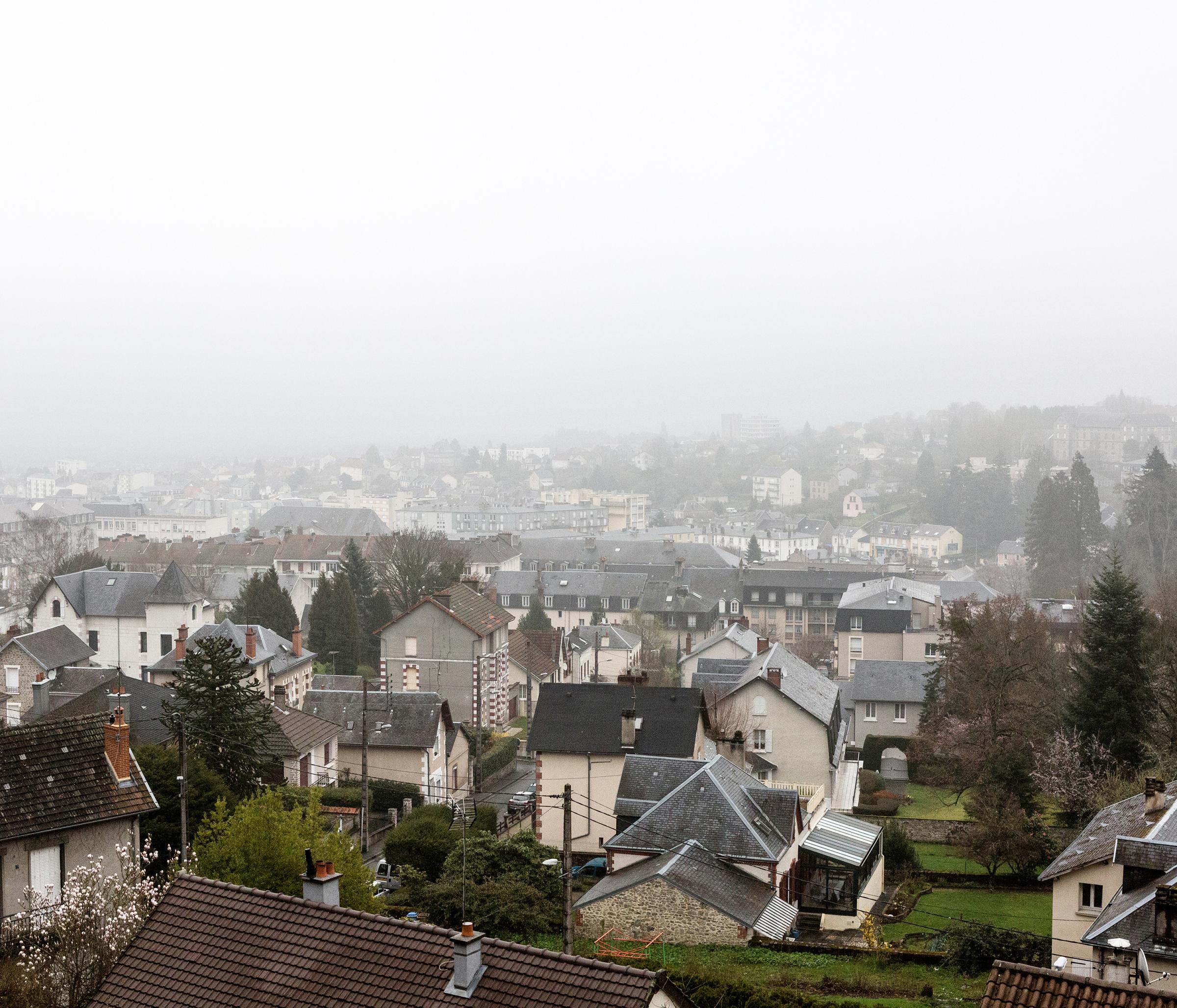
Ville de Guéret dans le département de la Creuse où se situe le foyer. Le Foyer de l'enfance de Guéret ouvre ses portes entre 1963 et 1965 et cesse l’accueil des enfants en 1986. C’est aujourd’hui un lieu dédié à la formation pour le Centre Hospitalier de Guéret. A l’entrée, une plaque commémorative est installée pour les enfants de la Creuse et le hall est rebaptisé « Espace créole ». Ce foyer a été conçu spécialement pour accueillir les enfants réunionnais et il pouvait loger plus de 140 enfants. Pour beaucoup d’entre-eux, le foyer est un lieu de mémoire. Simon: « Ici on était entre nous, on vivait bien, on était ensemble même si les contacts avec nos familles étaient interdits. Il y avait le quartier des petits, des filles et des grands. On a vécu beaucoup de choses ici, c’est nos racines avec des moments de joie, de bonheur mais aussi de tristesse. »
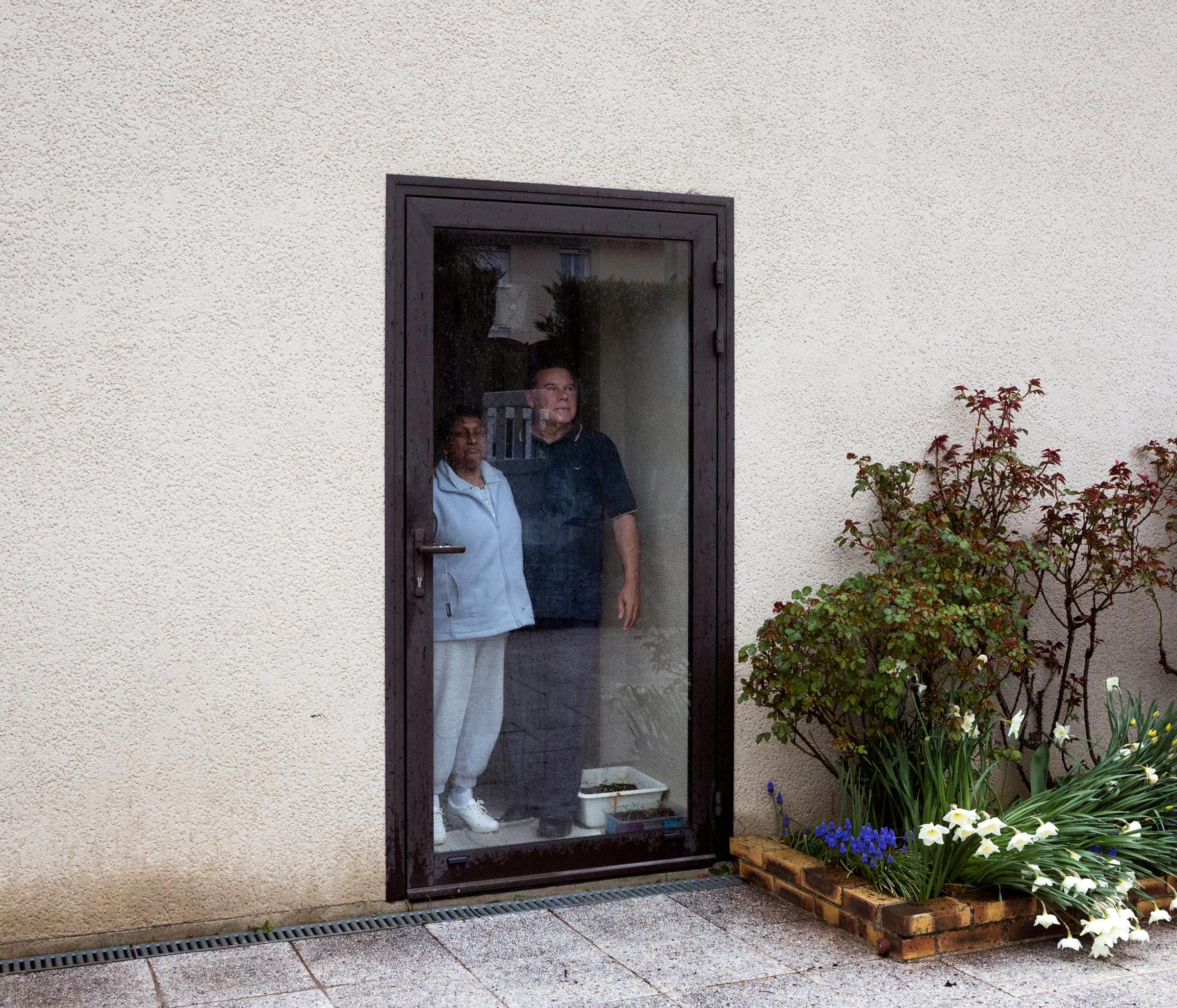
Michèle quitte la Réunion en août 1966, à l’âge de 13 ans avec 2 de ses frères et 2 de ses soeurs, issus d’une famille de 11 enfants. Michèle raconte: « l’assistante sociale est venue voir mes parents un jour à la maison, nous habitions sur St Denis. Elle leur a expliqué qu’il ne fallait pas qu’ils s’inquiètent car tous les ans nous pourrions revenir à la Réunion en vacances les voir. A l’époque, mes parents n’ont jamais rien signé, ils ont eu beaucoup de promesses. Mon père travaillait, on n’était pas malheureux chez nous, on avait toujours ce qu’il fallait, on allait à l’école, ma mère nous faisait nos vêtements, on était heureux chez nous ». Arrivée en métropole Michèle est envoyée au foyer de Gueret. Elle y rencontre Arzule, avec qui elle se marie à l’âge de 19 ans. Jusqu’à sa retraite Michèle travaille comme femme de ménage. Le couple reçoit la visite des parents de Michèle en Métropole et retourne pour la première fois à la Réunion en 1997. L’accueil de la famille sur place est difficile: « on nous a mis dehors, notamment une de mes tantes.
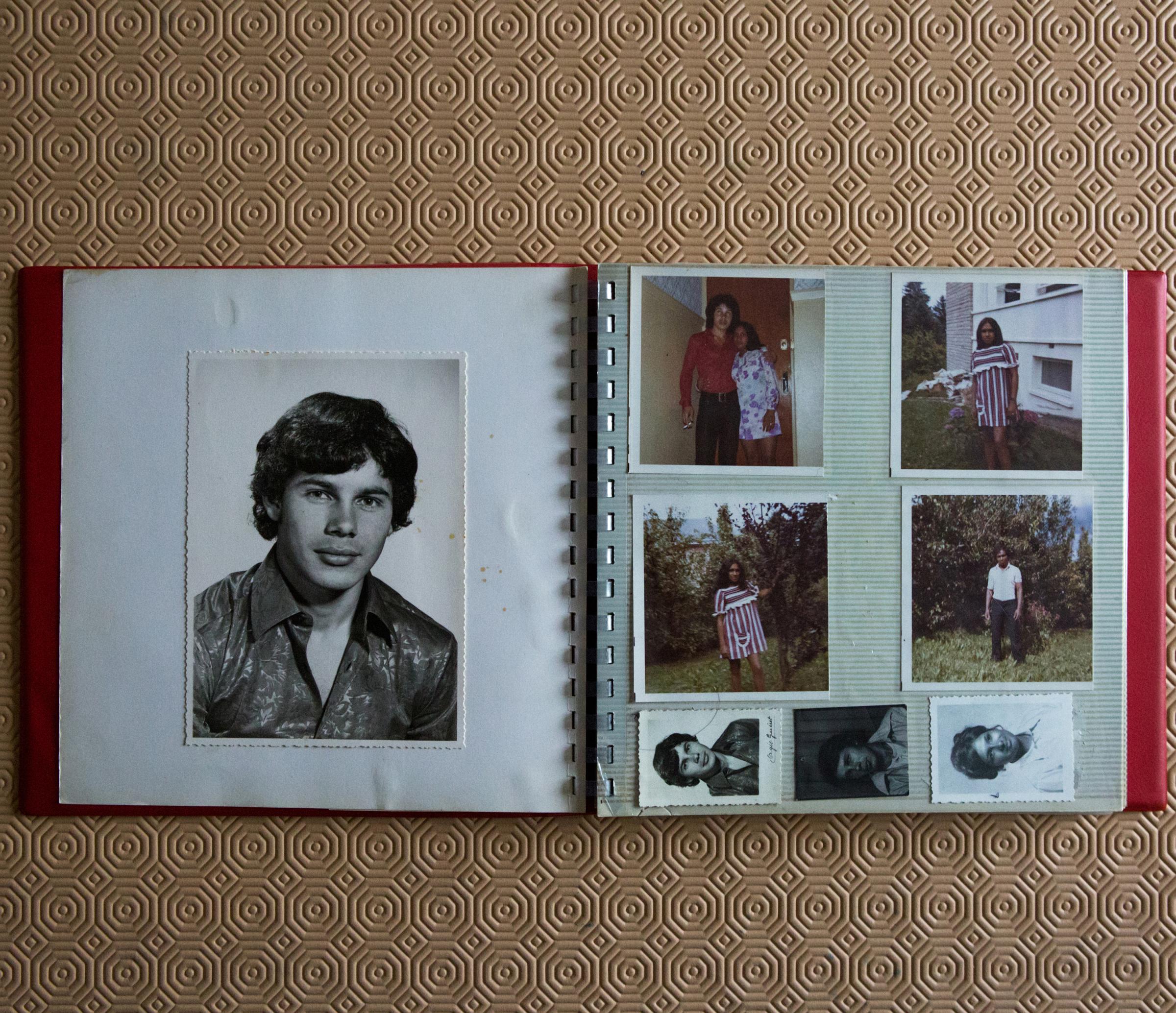
Aujourd’hui si je vais à la Réunion ce n’est pas pour voir ma famille, seulement une de mes soeurs qui est rentrée.» Arzule est né à Madagascar, d’un père malgache et d’une mère réunionnaise. Ils sont revenus vivre à l’île de la Réunion durant la guerre d’indépendance de Madagascar. Arzule explique: « ma mère a eu des difficultés à nous élever. Notre père était tout le temps malade donc personne ne souhaitait nous garder. On a donc été placé dans une famille d’accueil, j’avais 8 ans à cette époque mais ça n’a pas duré longtemps. On a ensuite été pris en charge par l’assistance publique, mis dans un foyer à Bellepierrre (St Denis) puis je suis parti seul dans un autre foyer à Hell-Bourg durant un an. C’est à l’âge de 13 ans que l’on nous a dit que nous allions partir en vacances en Métropole ».
•••••
Album photo de Michèle et Arzule. Ces photos ont été prises à Gueret.
•••••
Album photo de Michèle et Arzule. Ces photos ont été prises à Gueret.
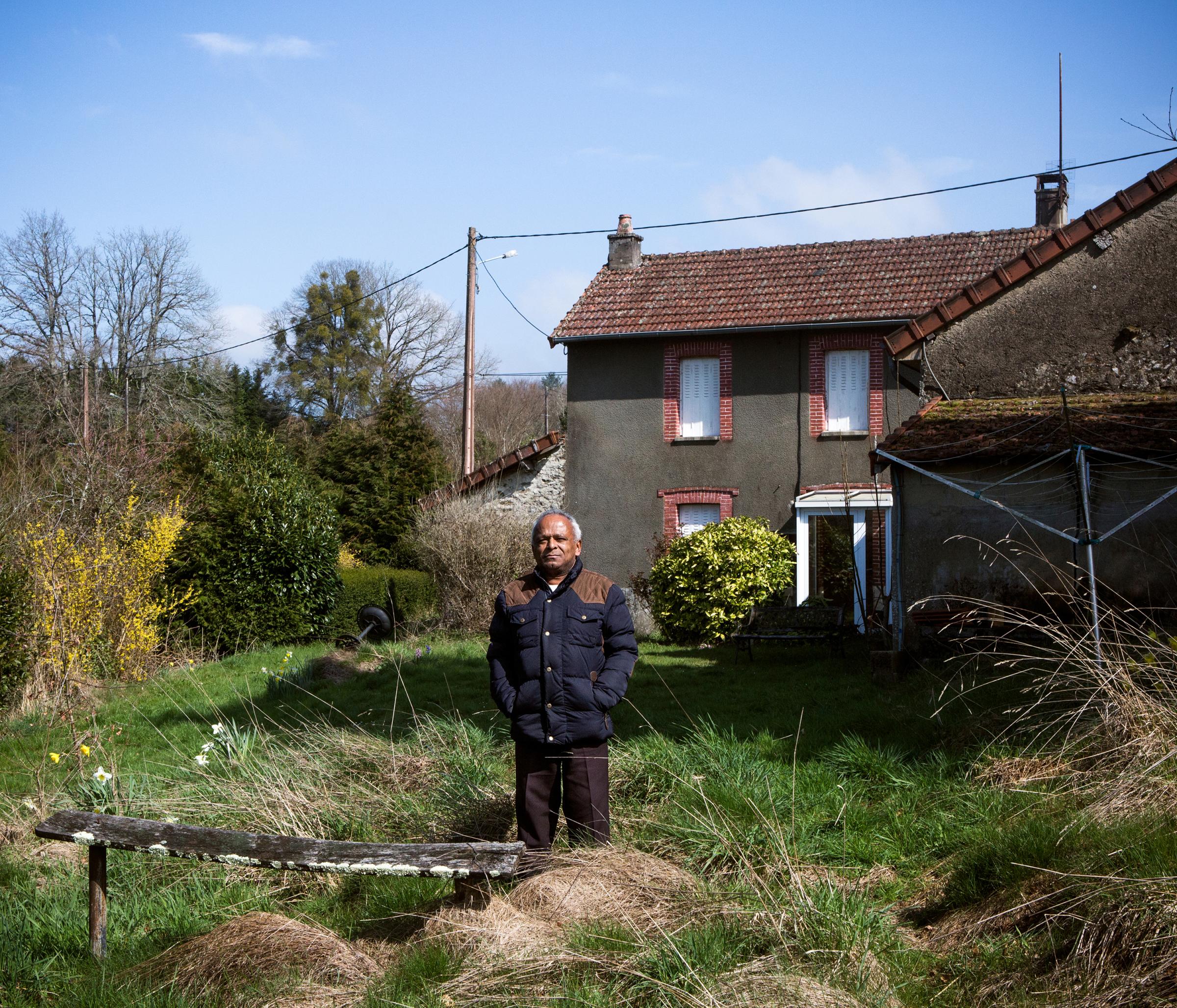
Simon quitte l’île de La Réunion à l’âge de 12 ans avec deux frères et une soeur. Ils vivaient tous les 4 chez leur grand-mère. Leur mère est décédée à la naissance de leur petite soeur et leur père a refait sa vie. « Un jour notre grand-mère nous a rassemblés, tous les 4. Elle nous a dit que nous allions partir en Métropole, et que c’était bien pour nous. Nous n’avons pas posé plus de questions. Je me rappelle que nous avons fait des photos et que le lendemain nous sommes partis. On a pris une caravelle qui est passée par Madagascar, puis Djibouti et enfin Paris. Arrivés à Paris, tous les gamins ont été triés dans un pavillon. Puis, nous avons pris un car, il y en avait deux remplis de gamins. Ensuite nous sommes arrivés à Guéret. Devant le foyer, des femmes nous attendaient, elles se sont occupées des petits, tout était déjà préparé. Les éducateurs eux, s’occupaient des grands. » Simon grandit entre le foyer et les familles d’accueil. Il parle de sa vie dans une de ces familles: « Je n’ai pas été malheureux dans cette famille, ils m’ont considéré comme un fils et ils ne m’ont pas forcé à faire la ferme comme beaucoup de mes concitoyens. J’étais bien, ils étaient gentils avec moi, mais je m’ennuyais à mourir dans ce village ». Simon fréquente l’école de Guéret. Il passe son certificat d’études, puis fait un CAP cuisine. Diplômé, il part tenter sa chance à Paris durant une année. « Ça a été une année difficile, je n’avais rien et je ne connaissais personne ». Il décide finalement de rentrer en Creuse. Après avoir été chef de cuisine dans plusieurs établissements, il obtient un poste à l’hôpital de Guéret où il passe 31 ans dans les cuisines avant sa retraite. Simon a 3 enfants avec sa femme rencontrée à l’hôpital et il vit toujours à Guéret. Aujourd’hui il dit ne pas avoir à se plaindre de ce qui lui est arrivé, à lui et sa fratrie. Il est retourné
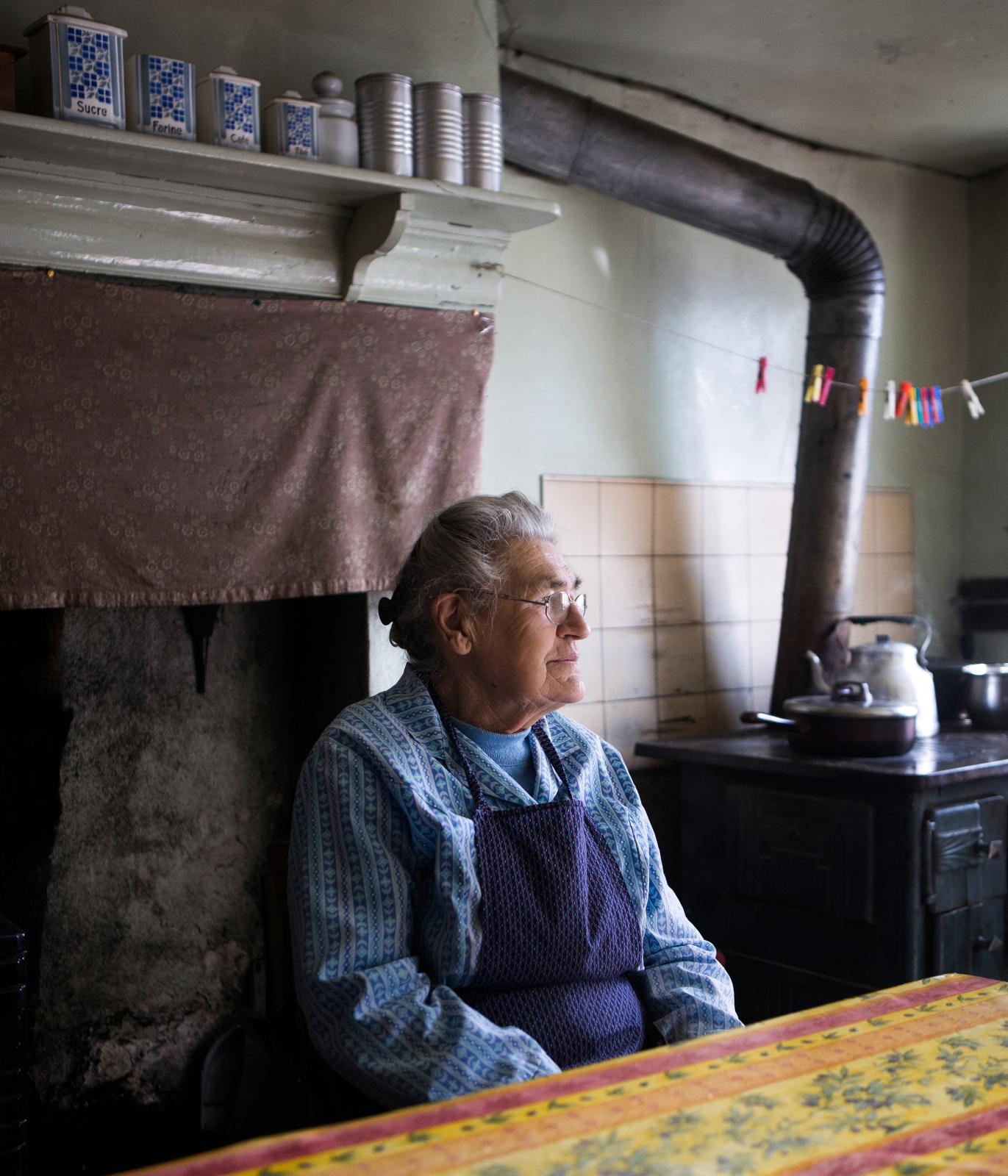
Mme Valada Monique est une habitante du village dans lequel Simon est arrivée. "C'était bien, ça faisait du monde. La famille dans laquelle Simon a été accueilli n'avait pas d'enfants, ils avainet juste des moutons et il fallait s'en occuper. Dans le village c'était bien, Simon était le seul petit réunionnais. Simon était gentil, il allait à l'école ici". Monique a eu connaissance de cette histoire des enfants de la creuse, elle dit: "Je pense que pour ces enfants ça a du être difficile d'arriver ici, d'être déraciné. certains sont tombés dans de bonnes familles aimantes d'autres non"
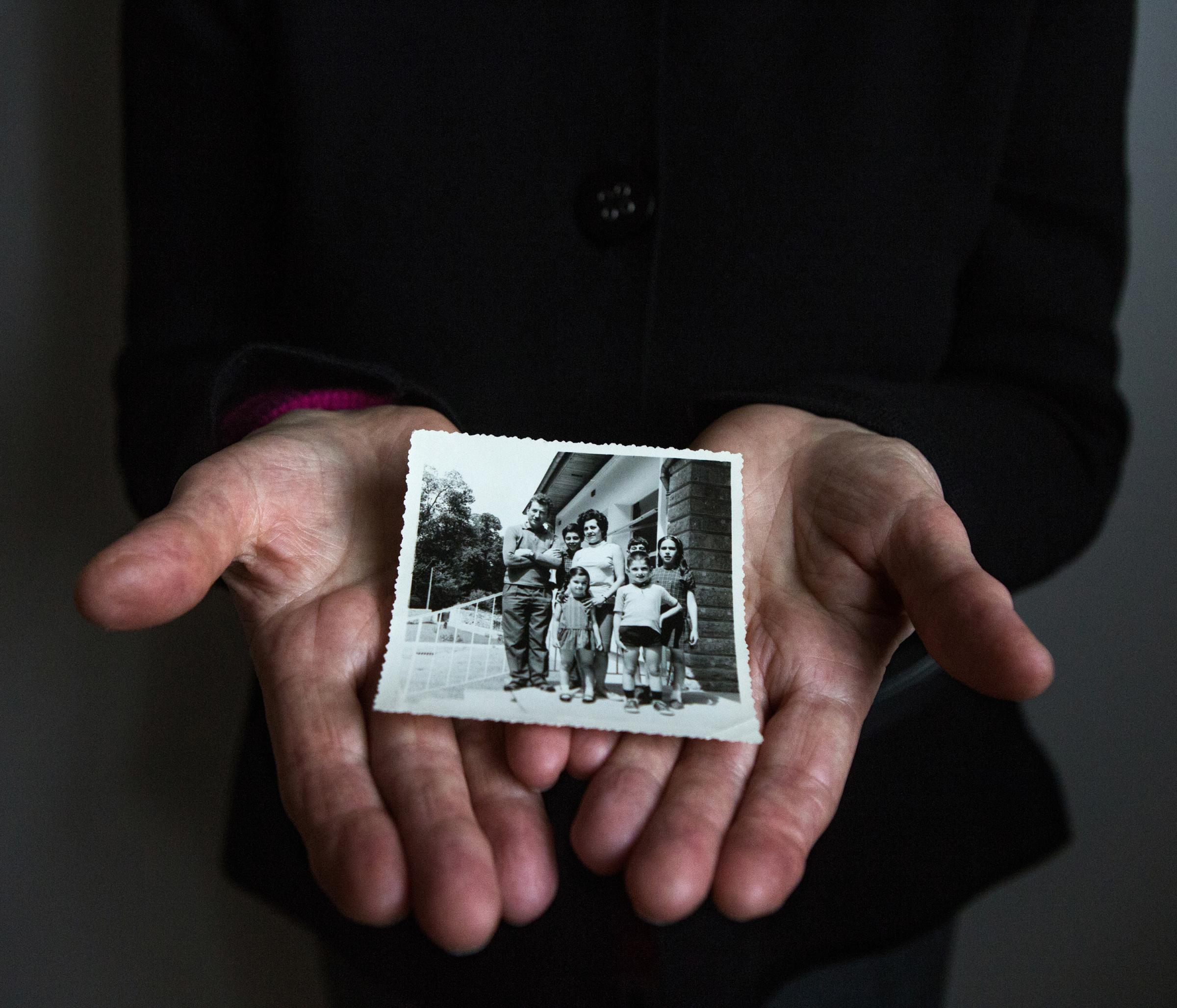
Germaine est arrivée en Creuse en 1966 suite à une mutation de son mari et trouve un emploi au foyer de l’enfance de Guéret. « J’étais mère de famille, mon travail était de m’occuper de tous ces enfants. Je devais leur apprendre à vivre ici. » Germaine travaille durant 5 ans dans ce foyer sans savoir comment et pourquoi ces enfants originaires de la Réunion arrivent ici. « Ça m’a questionné, nous posions des questions à la direction mais personne ne nous répondait. Entre 66 et 72, nous avons changé 5 fois de directeur et je trouvais ça bizarre puis en discutant avec les plus grands nous avons commencé à comprendre."
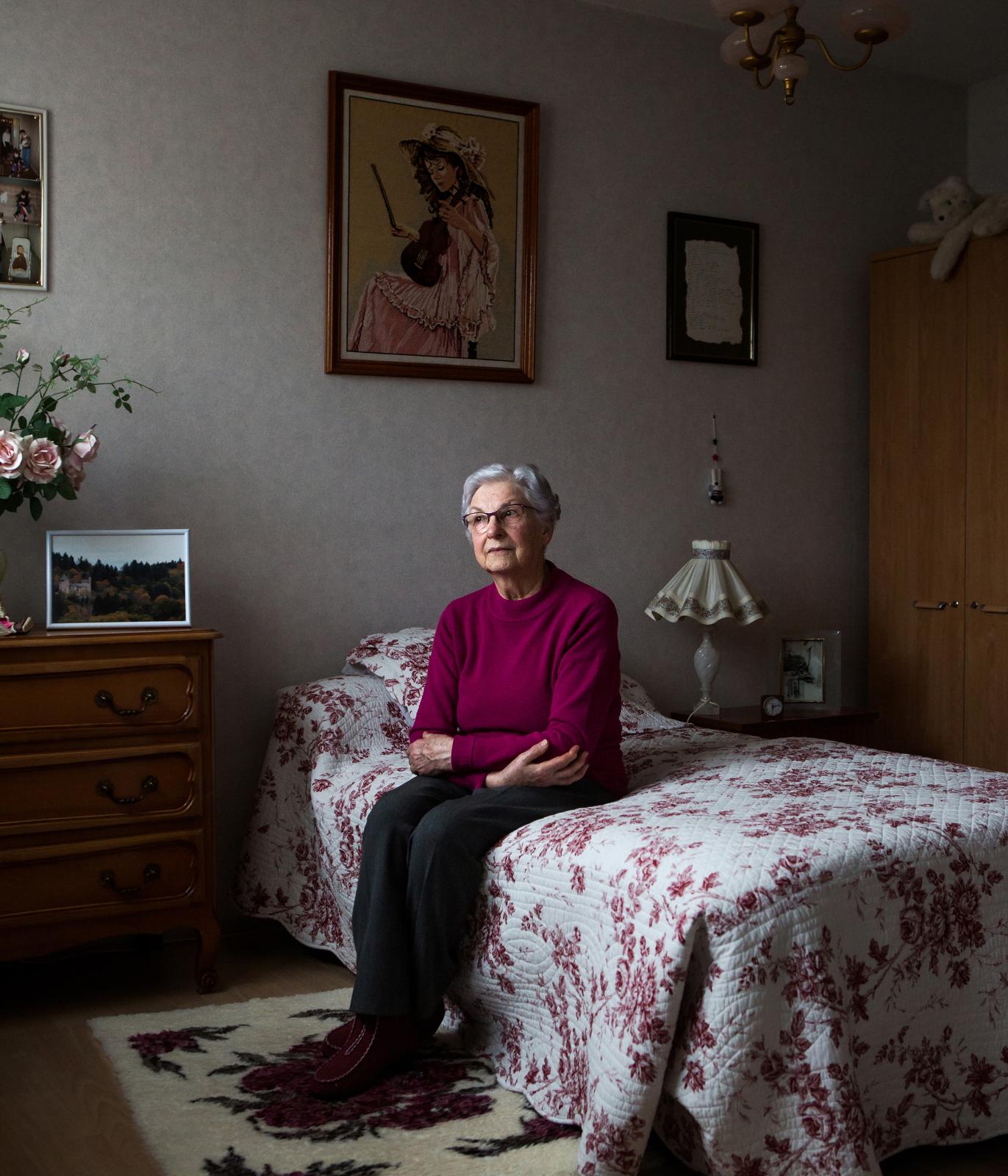
Germaine m’explique la vie au foyer: « Il y avait toujours beaucoup d’enfants dans le foyer, nous étions obligés de mettre des matelas au sol. Dès que des cars arrivaient, le lendemain des familles attendaient pour récupérer les plus petits et les plus grands partaient dans des fermes. J’essayais d’être comme une mère pour eux. Ils m’apprenaient le créole et moi j’apprenais aux filles à tricoter ». Aujourd’hui Germaine a pris connaissance de cette histoire qu’elle trouve «affreuse, affreuse de silences et de mensonges ». Elle s’est rapprochée de certaines associations des enfants de la Creuse et a même fait le voyage jusqu’à La Réunion où elle a été hébergée par un enfant dont elle s’occupait à l’époque au foyer.

Jean-Thierry arrive en métropole à l’âge de 7 ans avec 2 de ses soeurs. Il n’a que très peu de souvenirs de son histoire.« Je savais que j’avais été adopté et j’avais mis l’histoire réunionnaise de côté. Je cherchais plus à m’intégrer ici. Je me souviens surtout l’orphelinat. J’ai appris depuis que je n’étais pas orphelin. Ma mère semble avoir eu des difficultés à nous élever. Elle nous avait confiés à un oncle qui d’ailleurs souhaitait nous garder mais il n’avait pas de travail alors l’assistance publique nous a récupérés. Je me souviens du départ quand on nous a rassemblés et que l’on nous a fait chanter. Après nous sommes arrivés dans le Gers au foyer, à l'Aerium de St Clar où nous avons passé 3 à 4 mois. C’était l’hiver ». Jean-thierry est adopté par un couple d’enseignants à Auch. « Il y avait beaucoup de violence à la maison, mes soeurs ont subi des attouchements et moi je prenais des roustes régulièrement sans raison. J’ai grandi dans cette famille jusqu’à 14 ans car ils ont ensuite divorcé. Je suis resté avec ma mère et je n’ai plus eu de nouvelle de mon père. Notre mère nous a énormément apporté. Nous avons eu une très bonne éducation mais elle ne savait pas y faire au niveau affectif ».
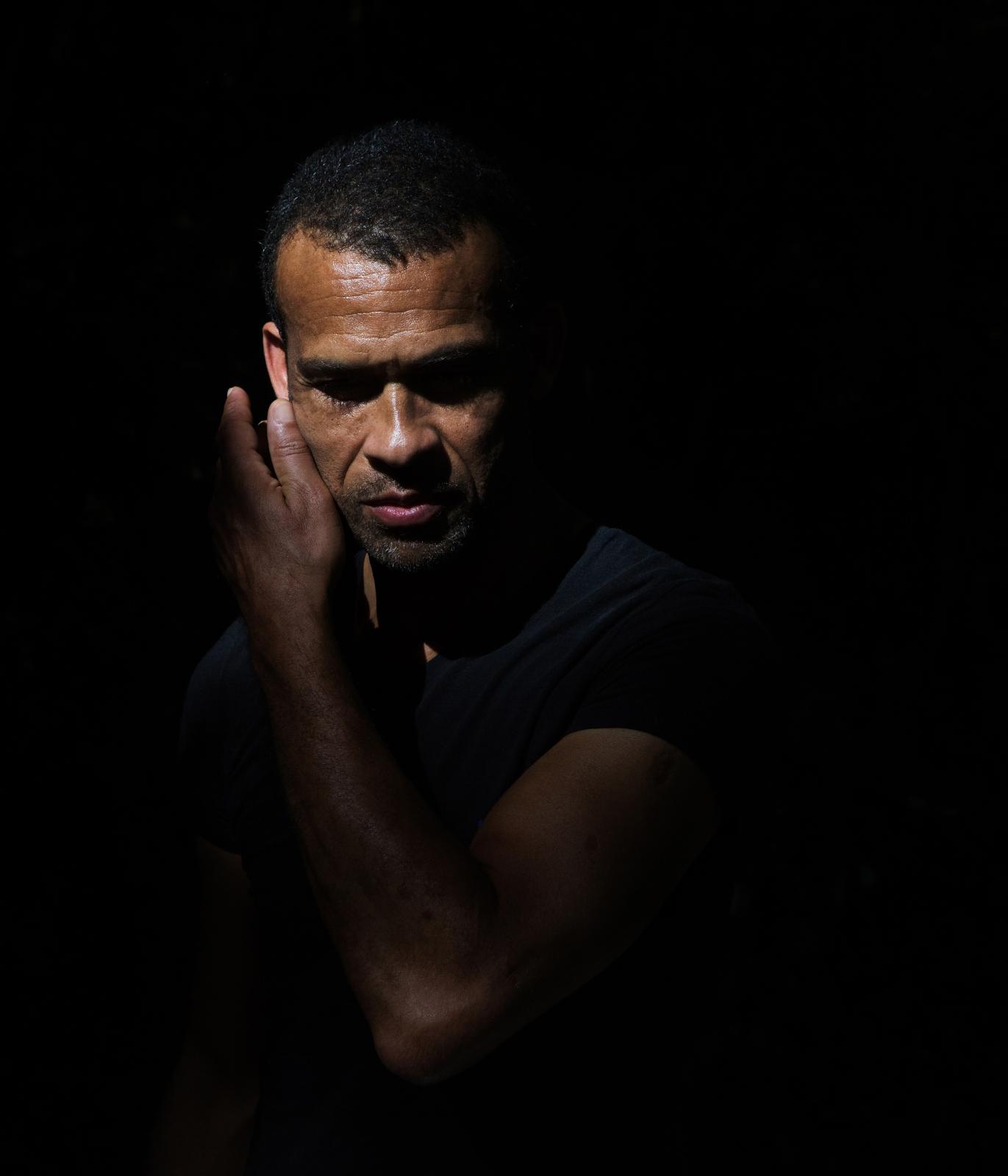
Jean-Thierry arrête prématurément sa scolarité pour être le plus rapidement possible indépendant. Il quitte le domicile familial après avoir obtenu son CAP en boulangerie. Il a toujours eu l’angoisse de retourner à La Réunion: « Y retourner pourquoi? qu’est-ce que j’allais faire là-bas? ». Une de ses soeurs retournée sur l’île retrouve leur mère. Lors de son deuxième voyage, Jean-Thierry, lui, retrouve une partie de sa famille suite à un message diffusé via la télévison. C’est avec émotion que Jean-Thierry confie aujourd’hui mener une lutte. « C’est un combat de reconnaissance, on ne peut pas rester victime toute sa vie, il faut reconnaître cette histoire et ainsi dépasser cette souffrance. C’est un combat personnel mais aussi collectif. A 50 ans ça m’amène à être clair avec moi-même. Et si tu veux te reconstruire il faut savoir d’où tu viens. Les pages blanches qu’il y a dans ma vie resteront blanches mais je peux les réinterpréter différemment ».
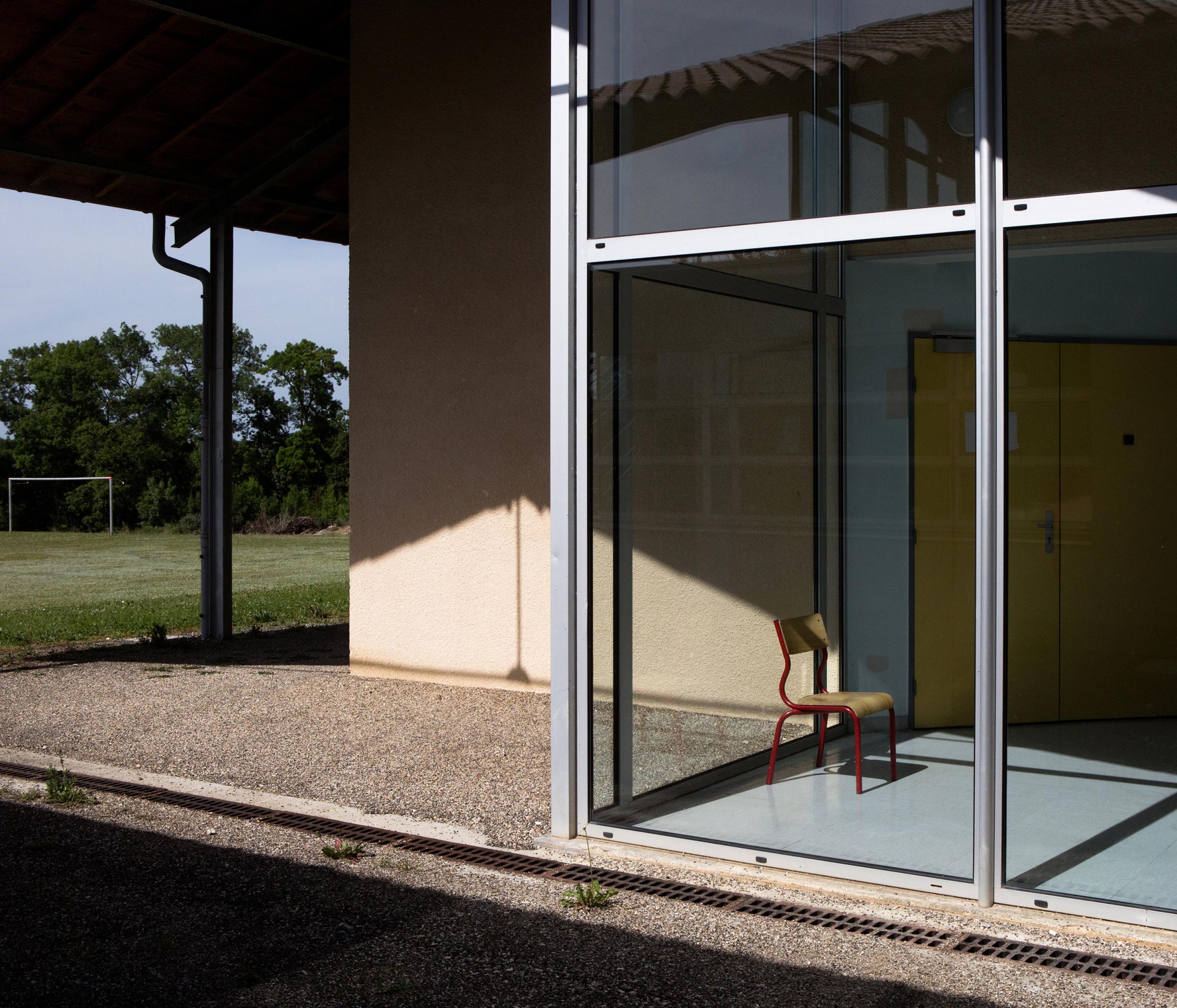
l'Aerium de St Clar, foyer qui a accueilli Jean-Thierry a son arrivée en métropole.
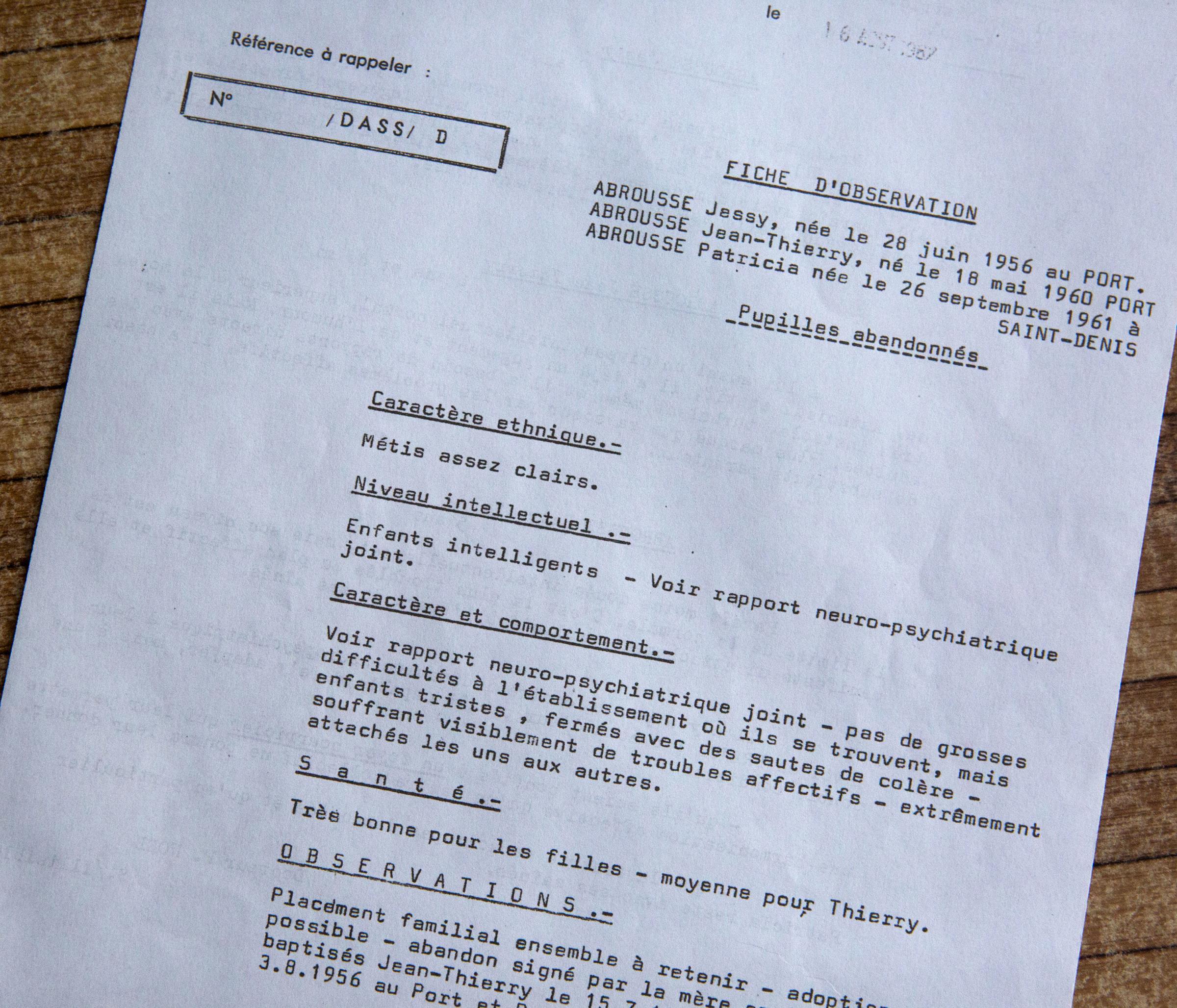
Fiche d'observation de la DASS de Jean-Thierry faite a son arrivée dans le Gers
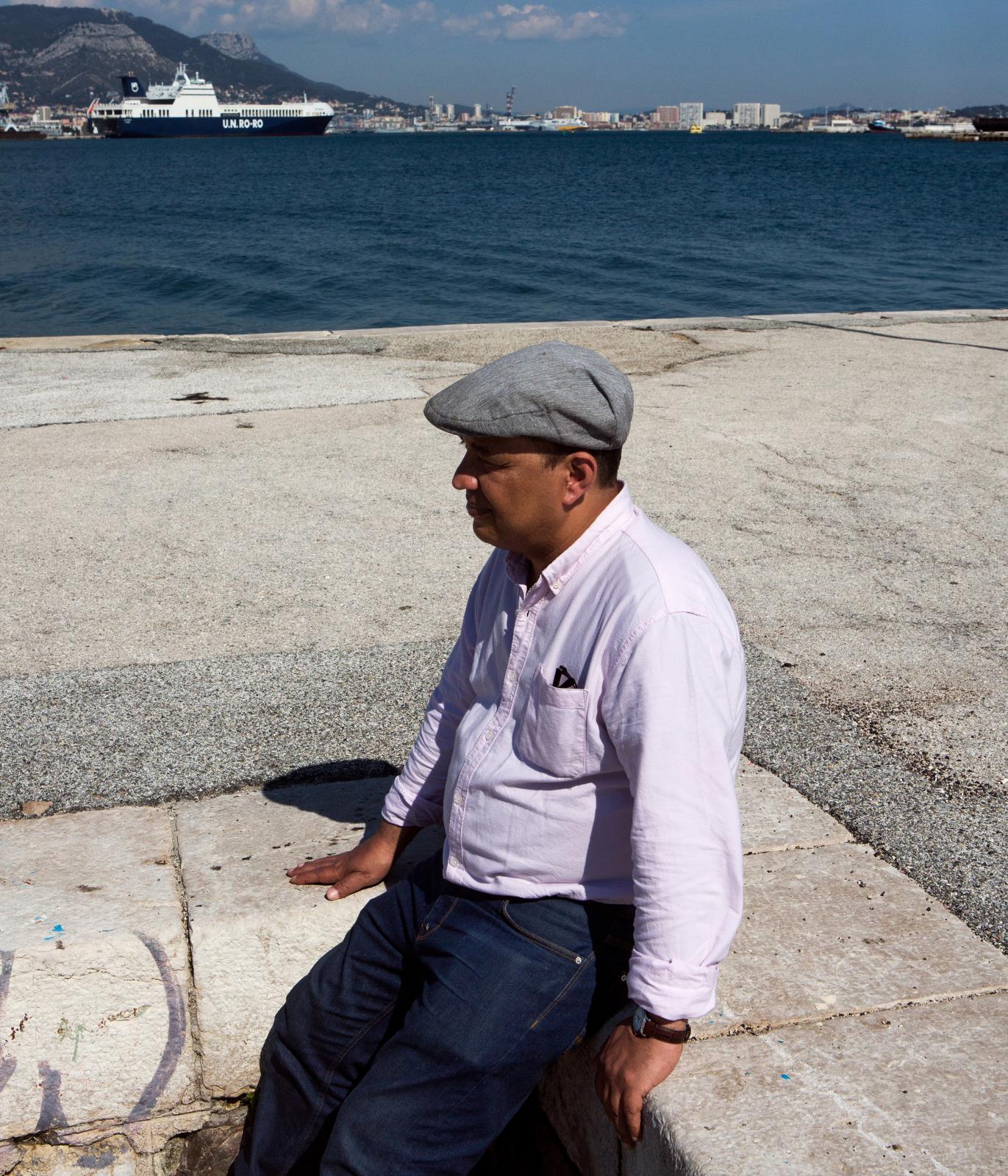
Jean-Bernard arrive à la pouponnière de St Denis à l’âge de 3 ans et quitte la Réunion avec sa soeur Sylvie à 5 ans. Il arrive en mai 1971 à Paris. Il se souvient: « mes parents adoptifs étaient là à l’aéroport, ils nous ont habillés car apparement nous avions juste sur nous la couverture d’Air France. Nous étions nus comme des verres ». Tous deux ont été adoptés par une famille de Lanester dans le Morbihan. Leurs parents ne leur ont jamais rien caché sur leur adoption. Mais c’est seulement en 2016, en regardant une émission télévisée que sa soeur et lui comprennent que leur adoption est une « escroquerie » comme il dit , une « magouille de l’état » et que « notre mère ne nous avait jamais abandonnés et c’est seulement maintenant que je découvre que j’ai une famille à La Réunion.
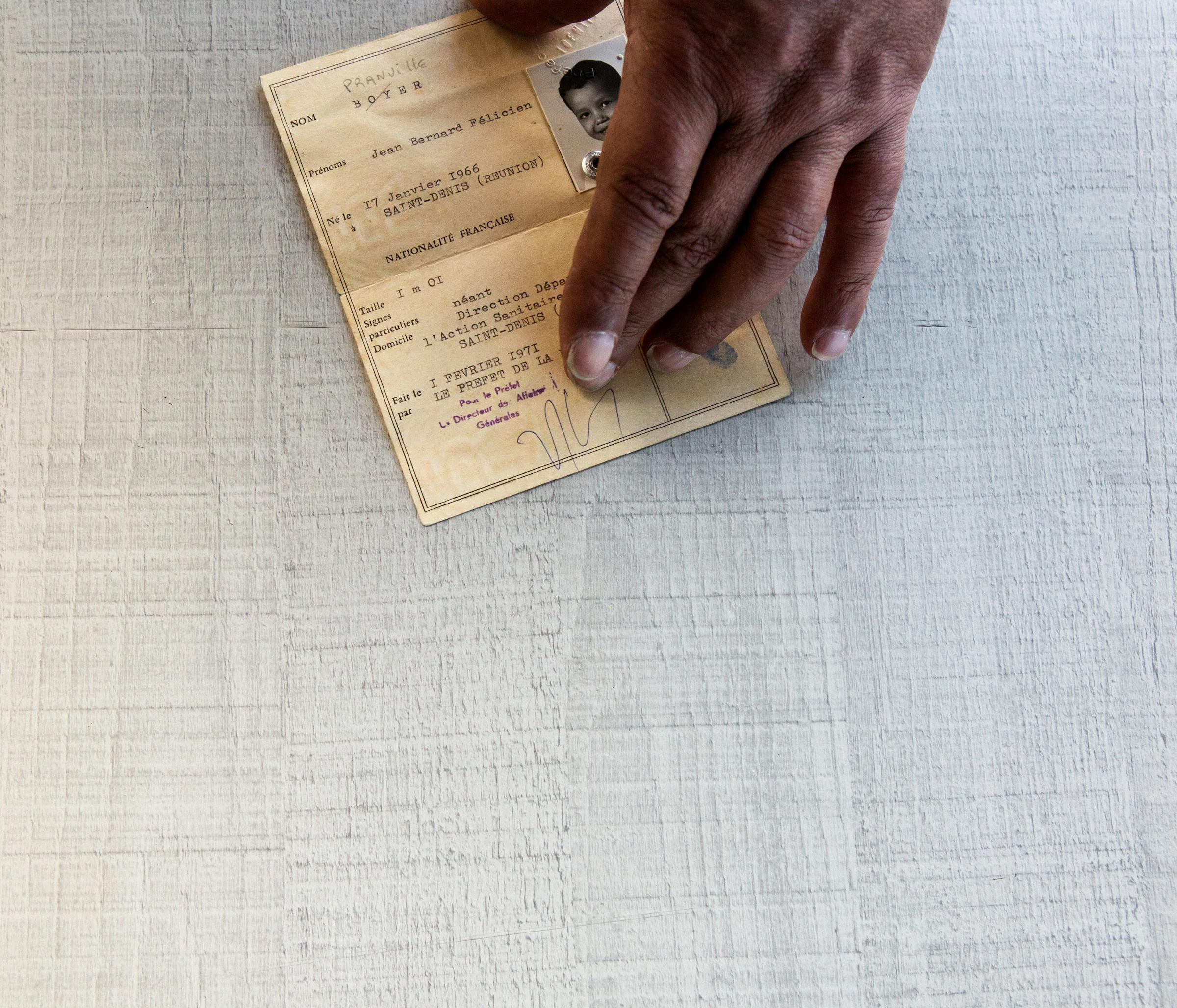
Toute ma vie, j’ai eu cette pensée que les réunionnais m’avaient abandonné. Je ne voulais plus entendre parler de La Réunion. J’ai même demandé à l’âge 7 ans de changer de nom. Je me suis fait une culture celte. Dans la région où nous avons été adoptés, nous étions les seules personnes de couleur, on a été bien accueillis dans l’ensemble même si nous avons connu pas mal de racisme. » Pour Jean-Bernard, sa famille adoptive n’était pas au courant de cette histoire: « c’était une famille de notable qui n’avait pas d’enfants et qui était juste désireuse d’en avoir ». Jean-Bernard, après un CAP/BEP en hôtellerie, a travaillé pendant plus de 20 ans dans les Antilles avant de revenir en Métropole. En 2017, il fait son 1er voyage à la Réunion avec une équipe de télévision australienne qui s’intéresse à son histoire. Là, il retrouve un frère, 4 soeurs, des cousins; toute une famille. Il découvre aussi une population, une île et sa culture. « Tout ça m’a beaucoup bousculé, j’ai compris que j’avais une histoire hors norme et que je me suis construit sur un mensonge. »
•••••
Première carte d'identité que Bernard a réussi à récupérer.
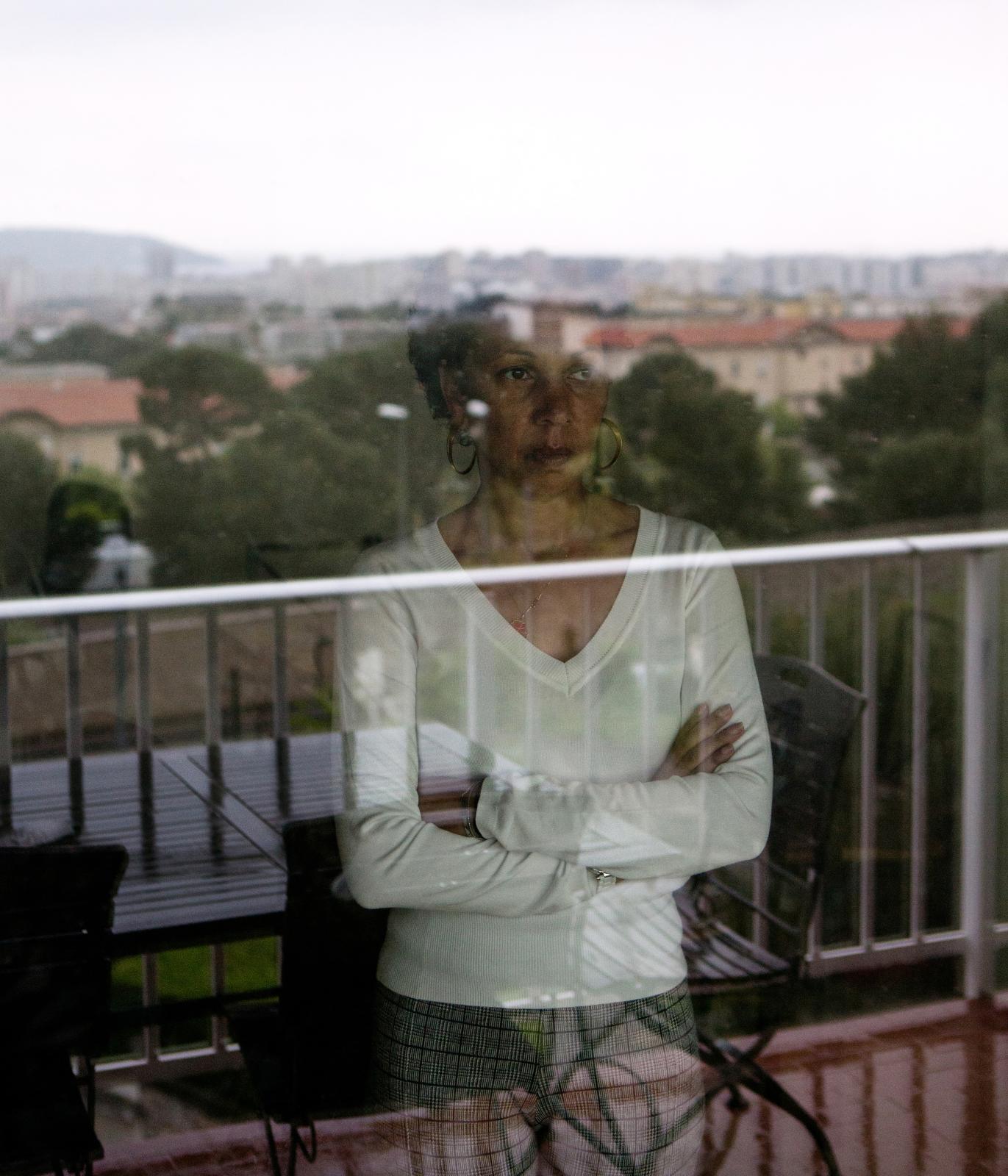
Sylvie est née en 1967, comme son frère Jean-Bernard, elle a été placée successivement chez son oncle, dans une famille d’accueil puis à la pouponnière de St Denis. Elle est envoyée en Métropole en 1971 pour y être adoptée par un couple de Bretagne. Sylvie explique: « J’ai toujours eu cette impression de ne pas être sur les bons rails. Mes souvenirs d’enfance sont pour la plupart négatifs avec une mère adoptive sévère et un père alcoolique qui a abusé de moi. Je me suis toujours sentie différente, au delà d’être métisse donc d’ailleurs. J’ai eu une enfance solitaire, j’étais timide et angoissée et j’ai toujours eu cette quête de savoir qui j’étais.
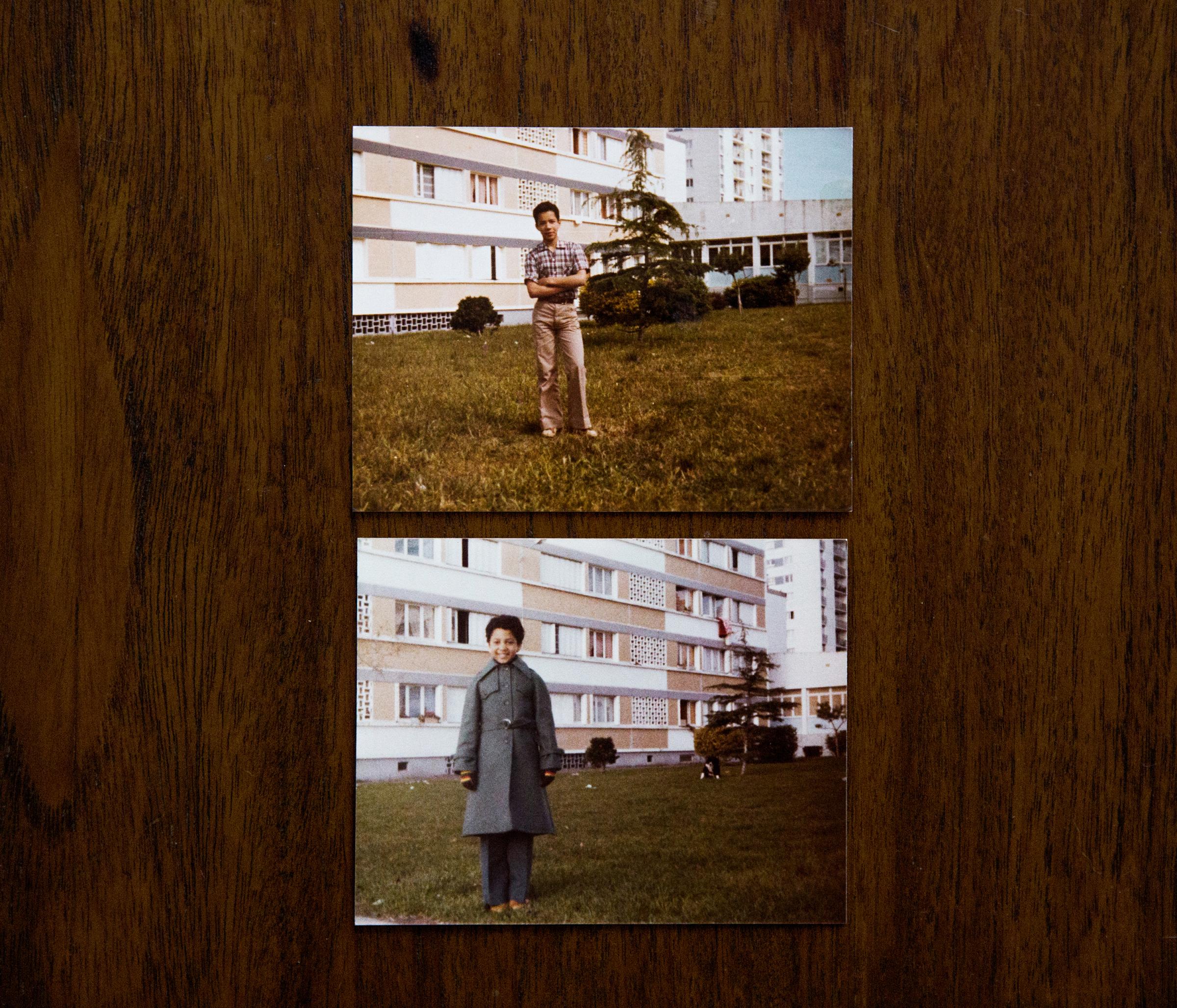
Je pensais à la Réunion tout le temps. Pour dire vrai, je ne me suis jamais sentie bretonne. » Sylvie fait des études dans le domaine sanitaire et sociale et devient AMP. Elle se marie et a une fille. En 1998, elle fait son 1er voyage à La Réunion et c’est un vrai choc pour elle. Elle apprend qu’elle est issue d’une fratrie de 11 frères et soeurs, rencontre des gens de sa famille: « un choc pour moi, je voyais enfin des gens qui me ressemblaient. » Après des dizaines de voyages à la Réunion, c’est en 2014, en regardant un reportage dédié aux enfants de la Creuse sur France O, qu’elle comprend réellement son parcours. Aujourd’hui, Sylvie s’est engagée dans une association pour faire reconnaitre cette histoire. « Je me suis construite comme un puzzle et j’en veux énormément à l’Etat pour tout ce qu’il nous a fait subir ». Elle compte repartir à la Réunion mais cette fois-ci pour y vivre: « j’ai besoin de m’ancrer sur ma terre, parce-qu’ici je m’éteins. J’ai ce sentiment d’inconnu mais je veux aller vivre là-bas ».
•••••
Photo de Sylvie et Bernard à Lorient.
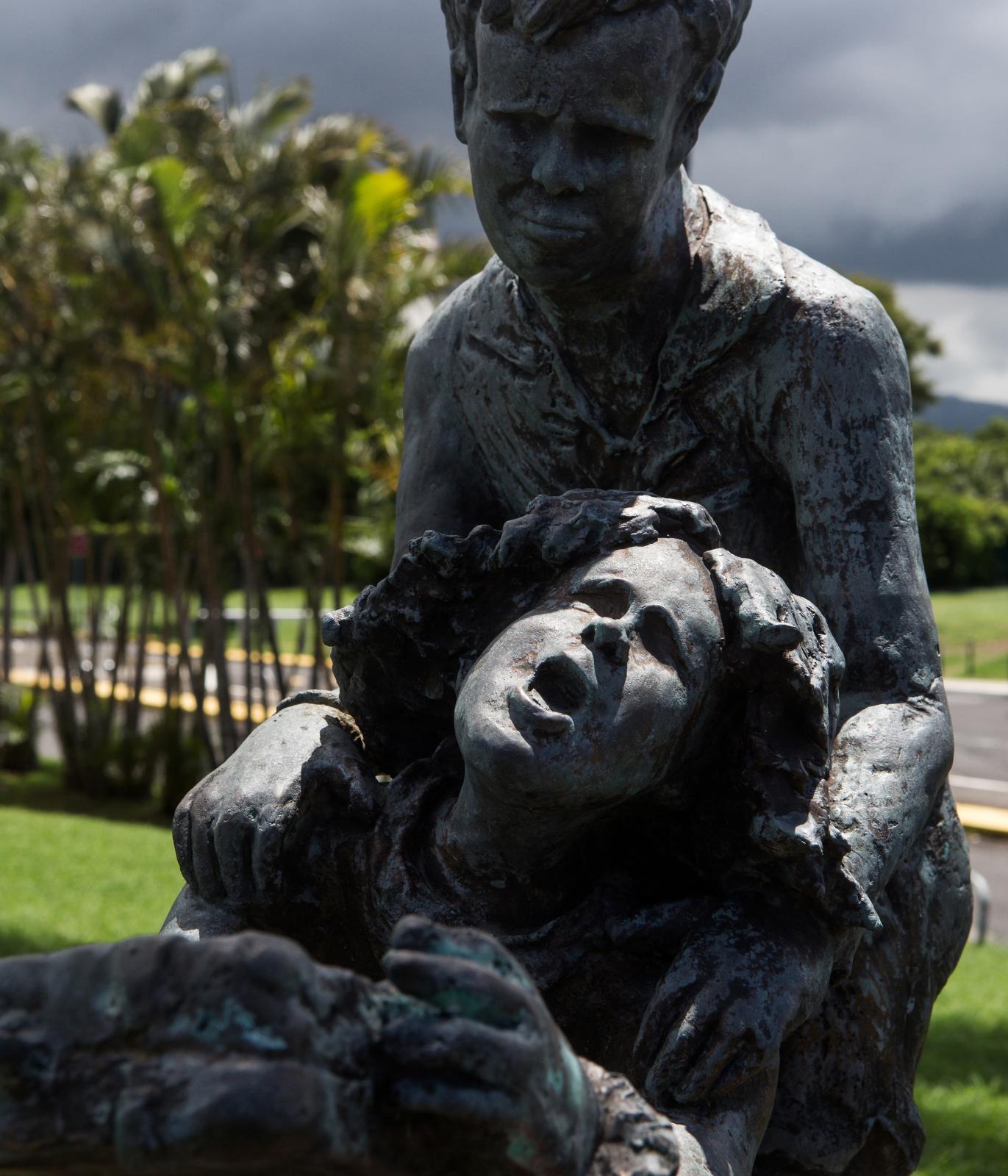
Stèle en mémoire des enfants exilés inaugurée le 20 novembre 2013, jour international des Droits de l’enfant, l’aéroport Roland Garros. La sculpture de Nelson Boyer prend place en un lieu et une date symboliques, "là où tout a commencé" il y a 50 ans.
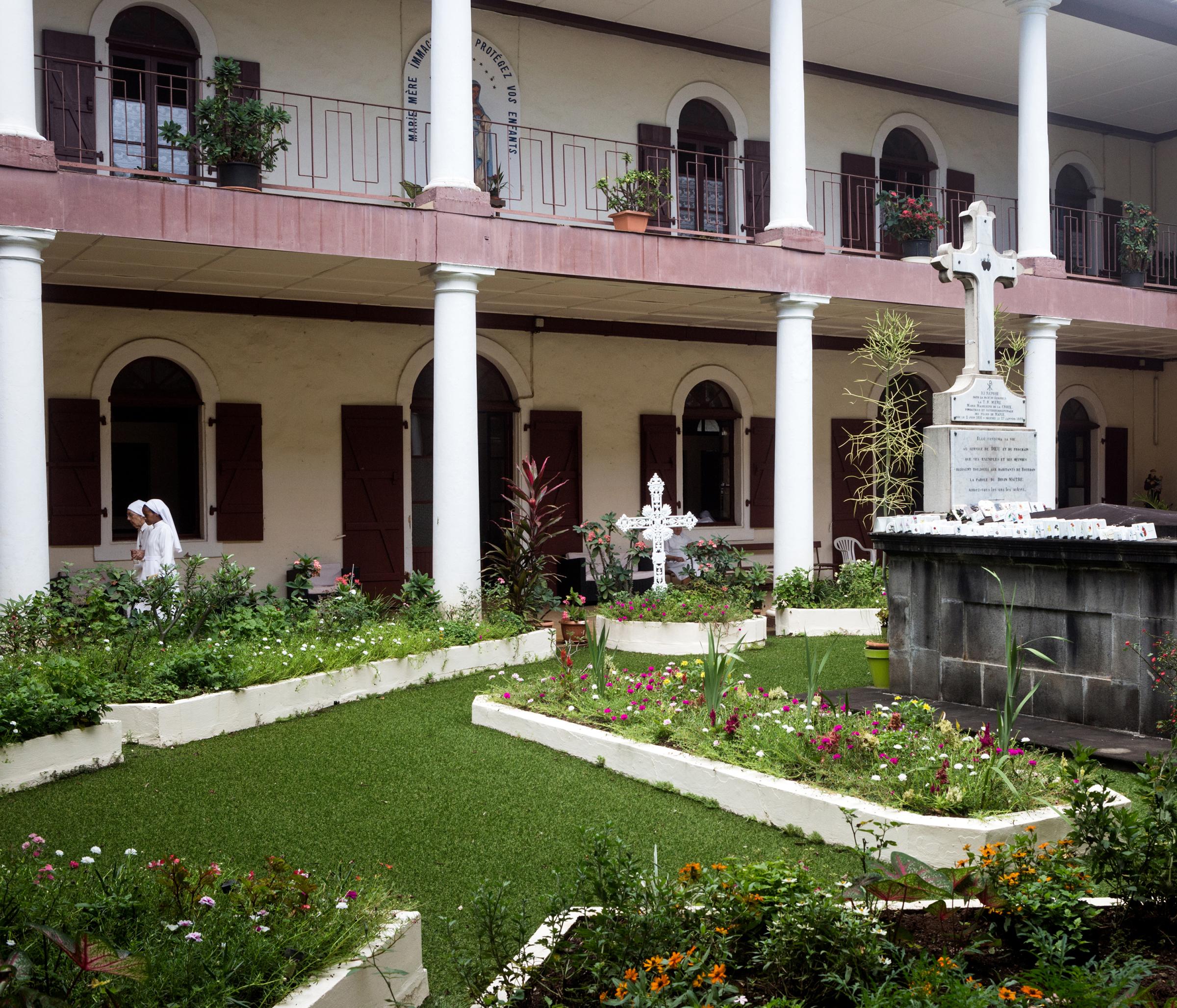
Couvent de la Providence à St Denis, situé à proximité de la pouponnière où la majorité des enfants éxilés faisaient un passage avant leur départ pour la métropole. Ce couvent accueille toujours la congrégation «Les Filles de Marie» qui est un ordre fondé à la Réunion au XIXème siècle par Aimée Pignolet de Fresnes avec l'aide du Père Levavasseur.
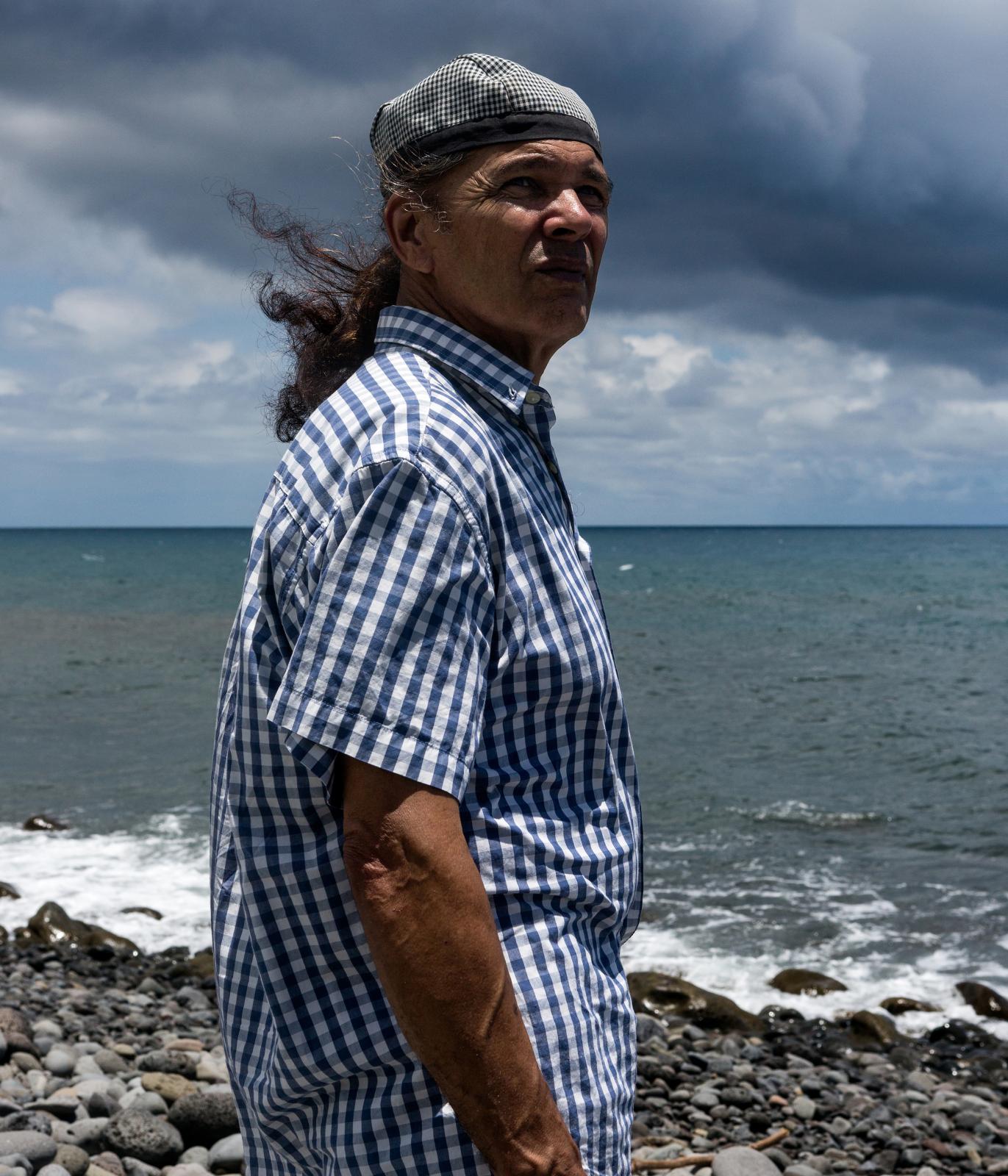
Jean-Philippe est né à la Plaine des Cafres sur l’île de La Réunion. Il est issu d’une famille de 6 enfants. Suite à un accident son père a été incarcéré, sa mère s’occupait alors seule de toute la famille tout en travaillant comme couturière. Jean-Philippe comme il le dit liu-même, était un garçon agité qui était souvent dans le quartier à jouer avec les copains. A l’âge de 9 ans suite à deux enquêtes sociales et des concours de circonstances d'enfants, il a été envoyé par Mme Payet au foyer de l'APEP ((Association des Pupilles de l Ecole Publique) de Hell-Bourg. Là-bas, il dit avoir vécu l’enfer pendant un an et demi: « Les punitions et les sévices étaient quotidien, on vivait dans un environnement de peur et de terreur. Le foyer était fait pour accueillir 80 enfants, nous étions au moins 300. Je n’avais pas de visite de mes parents car les routes étaient mauvaises à l’époque et c’était beaucoup trop loin pour eux. Au foyer on avait comme une sorte de lavage de cerveau fait des éducateurs qui n’en étaient pas. C’était comme un endormissement à telle point que lorsque l’on nous a demandé si nous voulions aller en France, nous n’hésitions pas à dire oui qui quitter au plus vite cet endroit » Avec le temps, la mère et le père de Jean-Philippe ont été poussé à signer les papiers de départ pour la métropole avec la promesse d’un avenir meilleur comme me l’explique Jean-Philippe.
C’est donc, « A l’âge de 11 ans, que l’on est venu me chercher. Nous avons pris l’avion pour Paris, puis un car pour Guéret. On nous pris comme des animaux » Jean-Philippe est resté peu de temps au foyer de Guéret. « Ils m’ont mis d’abord à travailler dans une boulangerie puis ensuite je suis parti dans une famille d’accueille où je faisais toutes les taches ménagères et je n’allais pratiquement pas à l’école. J’ai appris à écrire seulement plus tard à l’armée ».
C’est donc, « A l’âge de 11 ans, que l’on est venu me chercher. Nous avons pris l’avion pour Paris, puis un car pour Guéret. On nous pris comme des animaux » Jean-Philippe est resté peu de temps au foyer de Guéret. « Ils m’ont mis d’abord à travailler dans une boulangerie puis ensuite je suis parti dans une famille d’accueille où je faisais toutes les taches ménagères et je n’allais pratiquement pas à l’école. J’ai appris à écrire seulement plus tard à l’armée ».
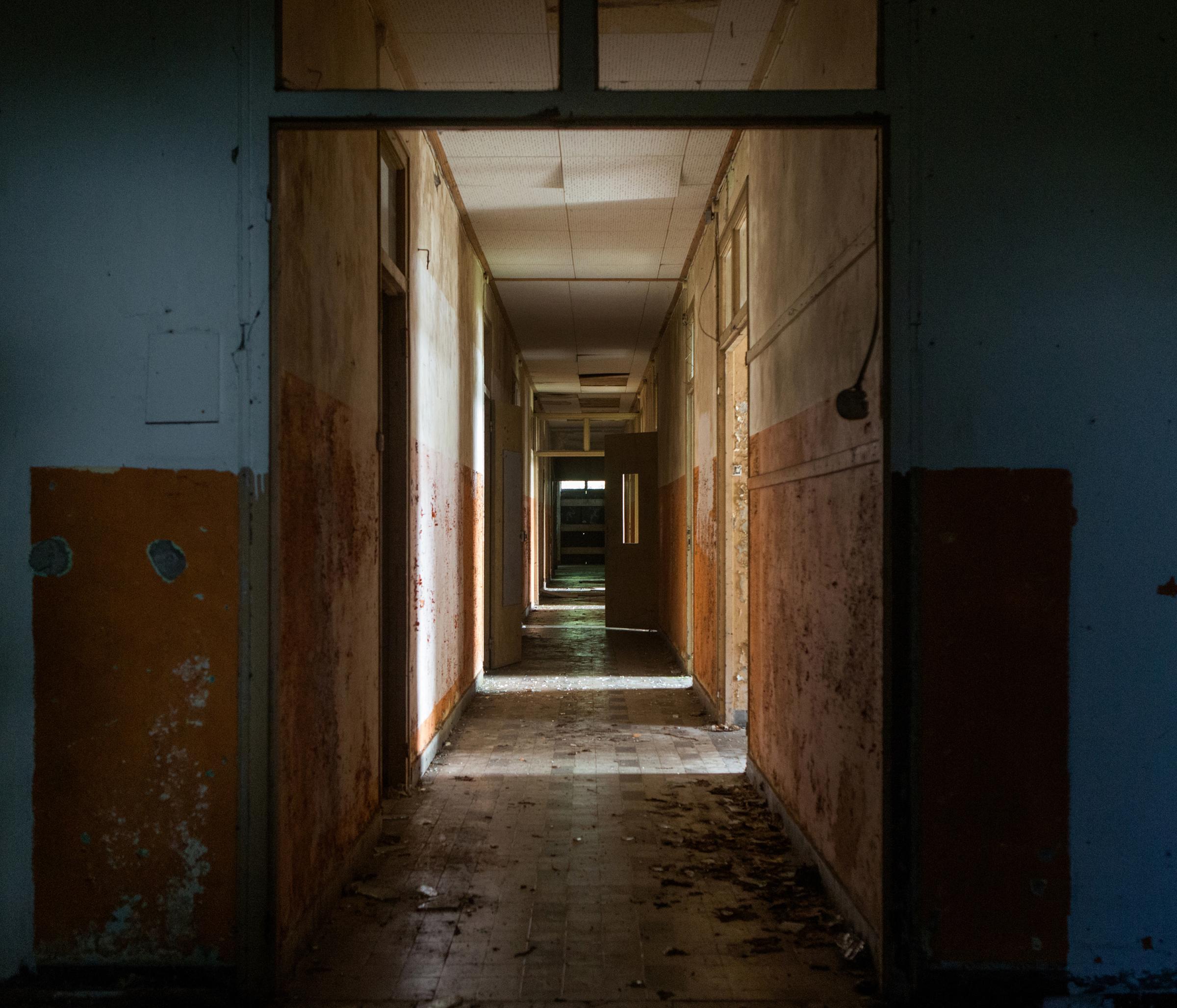
A 20 ans, un diplôme d’apprenti boulanger en poche, puis l’armée enfin « libre » comme il dit. Premier mariage en métropole puis en 1987 à l’âge de 30 ans retour à la Réunion avec le désir de retourner ses racines, « on ne peut pas construire quelque chose sur des sables mouvants ». C’est seulement en 1995 après le visionnage d’une émission de télé qu’il découvre l’histoire des enfants réunionnais, « il y a eu tromperie », depuis il a créé avec d’autres l’association "rasinn-anler » qu’il préside actuellement qui a pour objectif de faire avancer tous ces "dossiers" en latence afin que notre réparation morale soie accomplie.
•••••
Foyer Marie Poittevin, La Plaine des Cafres, Ile de la Reunion. Ce foyer accueilla de nombreux enfants qui fut ensuite exilés en métropole. Le foyer est actuellement à l’abandon.
•••••
Foyer Marie Poittevin, La Plaine des Cafres, Ile de la Reunion. Ce foyer accueilla de nombreux enfants qui fut ensuite exilés en métropole. Le foyer est actuellement à l’abandon.
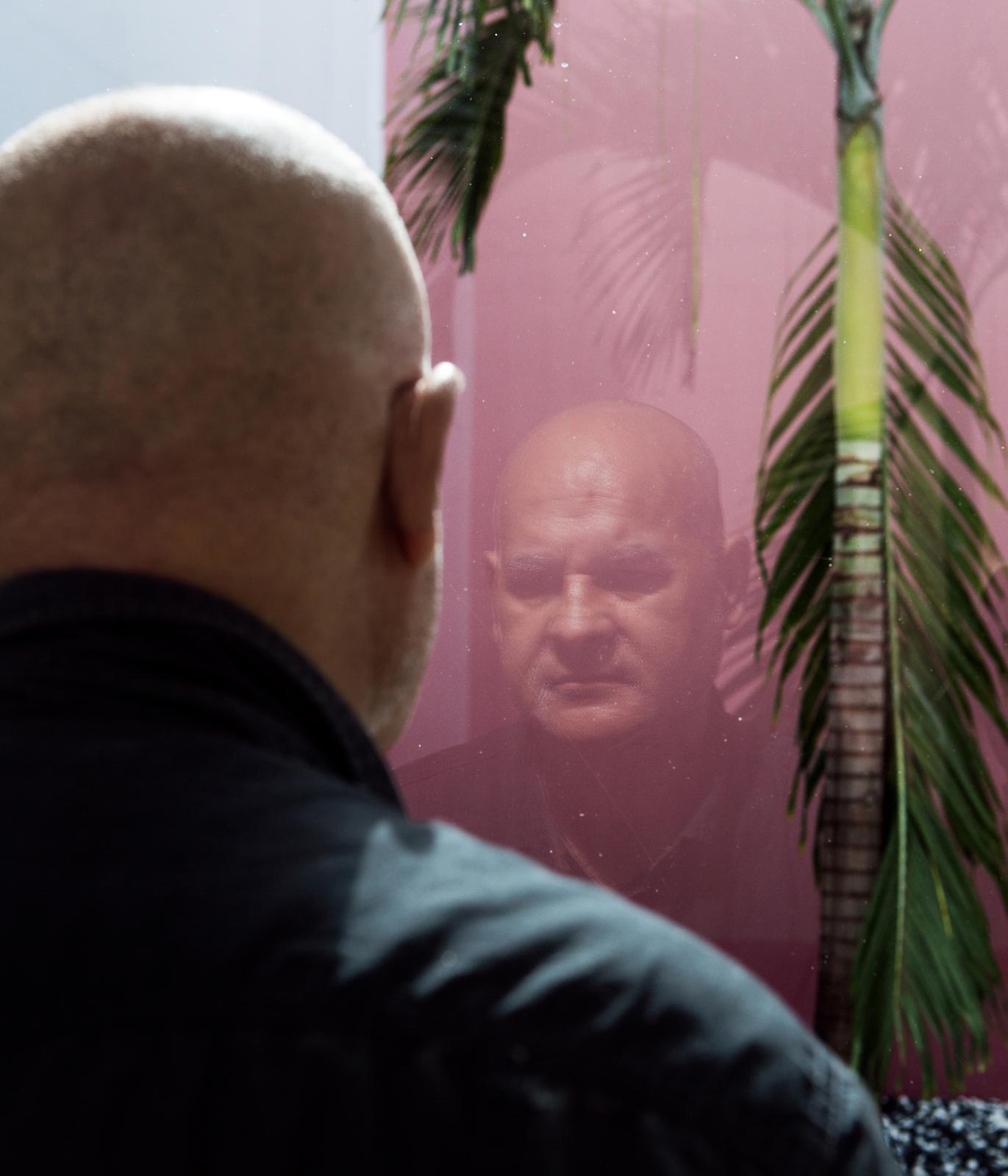
Alix Cail est aujourd’hui âgé de 65 ans, il est originaire de St-Rose. Orphelin à l’âge de 8 ans suite au décès de sa mère d’une maladie et de père inconnu, il est d’abord placé dans un famille d’accueille mais il « ravageait trop » selon ses dires alors cette famille a souhaité qu’il parte. Il a donc été placé au foyer de l'APEP (Association des Pupilles de l Ecole Publique) de Hell-Bourg où il resta un peu plus de 4 ans. Alix a une soeur qui elle a été placée chez une nourrice à la Réunion. Le 2 octobre 1964, Alix est envoyé en métropole. Arrivé à Paris, il prend un train pour Toulouse, puis un bus en direction du foyer Saint-Jean d’Albi où il restera jusqu’à l’âge de 15 ans avant d’être placé dans une famille d’accueille à côté d’Albi. A l’âge de 20 ans, il part pour Toulouse, où il enchaine les petits boulots, dans la restauration ou encore les vendanges. En 1997, Alix décide de revenir à la Réunion sans vraiment connaitre grand monde à part sa soeur qu’il retrouve. Isolé, il trouve du travail dans l’entretien d’immeuble. C’est seulement en 2012 qu’il apprend son histoire d’enfance en exile grâce à Jean-Philippe. Aujourd’hui, Alix vit dans une EHPAD à St Denis où il a été placé par sa soeur suite aux séquelles d’une méningite.
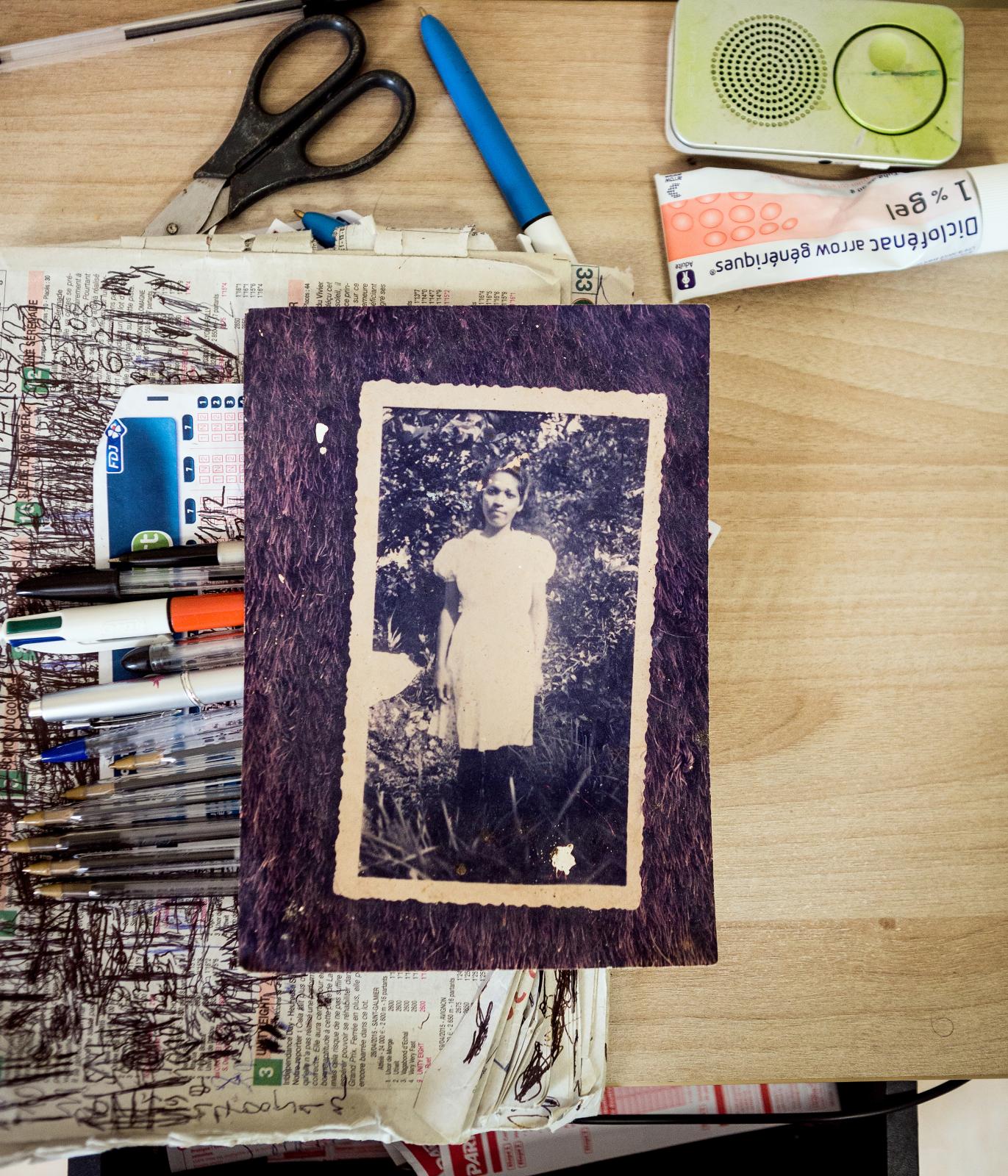
Photo de la mère de Alix sur sa table de chevet à l’EHPAD
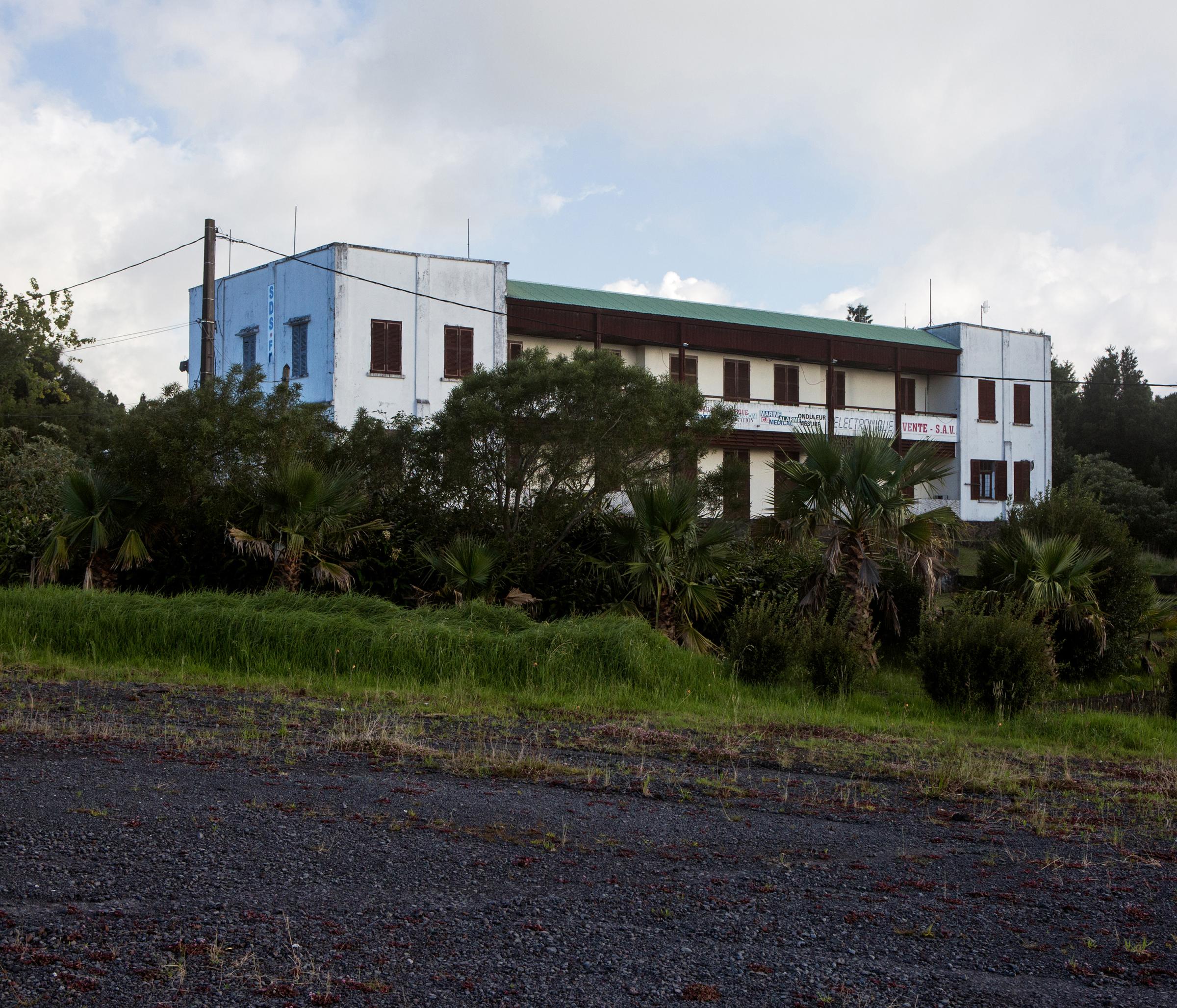
L’Association pour l’enfance coupable et abandonnée (APECA ) est située à la Plaine des Cafres dans les hauts de La Réunion afin de favoriser l’isolement des jeunes. Il était dirigé par le frère Polycarpe. L’établissement était connu pour avoir une discipline de fer et dans les familles réunionnaises on menaçait souvent les enfants turbulents de les envoyer à l’APECA. Les anciens en parlent en des termes difficiles, les autres lui attribuant leur réussite, les ayant détourné de la délinquance. De nombreux enfants exilés en métropole sont passés par l’APECA de la Plaine des Cafres.
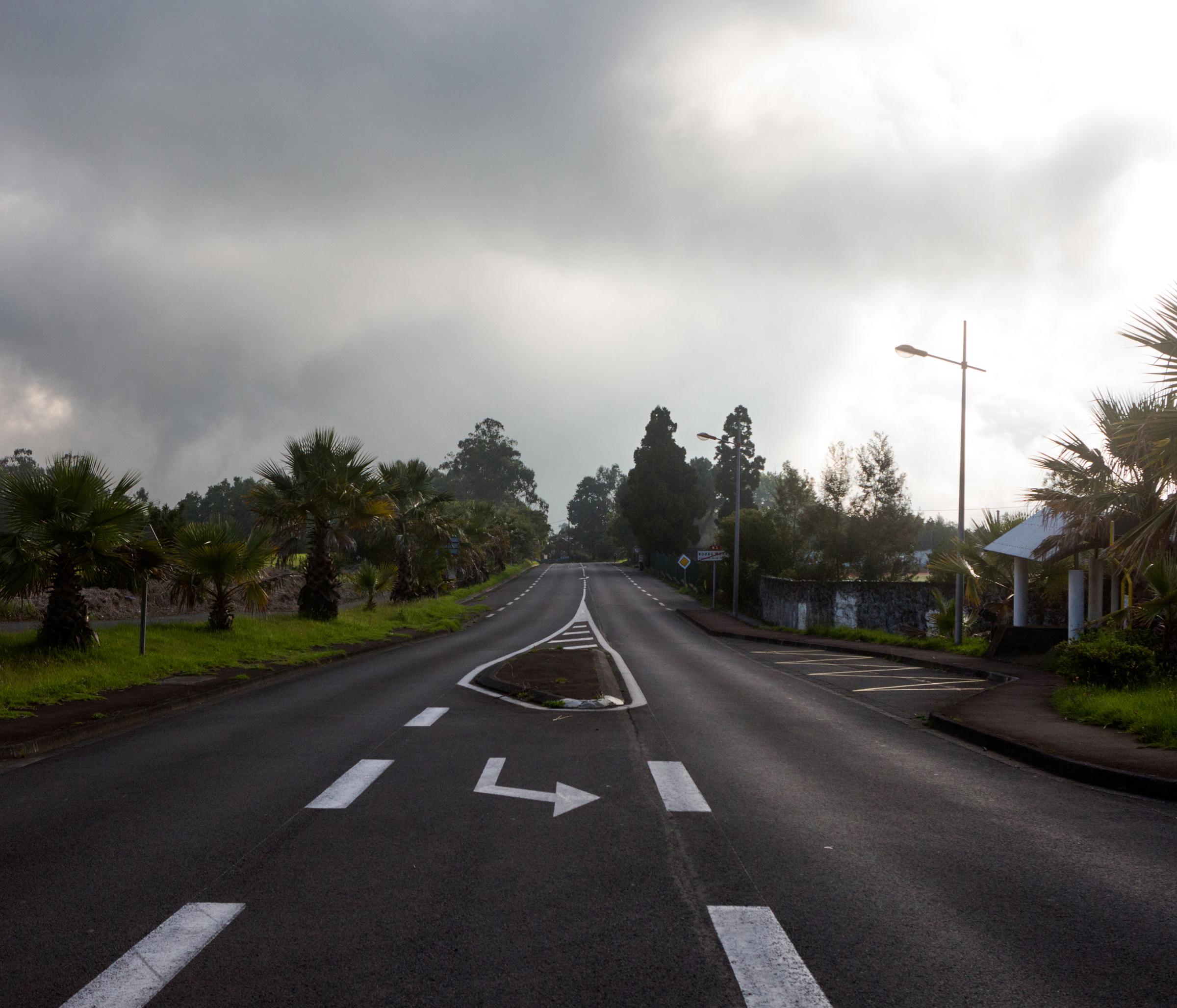
L’Association pour l’enfance coupable et abandonnée (APECA ) est située à la Plaine des Cafres dans les hauts de La Réunion afin de favoriser l’isolement des jeunes. Il était dirigé par le frère Polycarpe. L’établissement était connu pour avoir une discipline de fer et dans les familles réunionnaises on menaçait souvent les enfants turbulents de les envoyer à l’APECA. Les anciens en parlent en des termes difficiles, les autres lui attribuant leur réussite, les ayant détourné de la délinquance. De nombreux enfants exilés en métropole sont passés par l’APECA de la Plaine des Cafres.
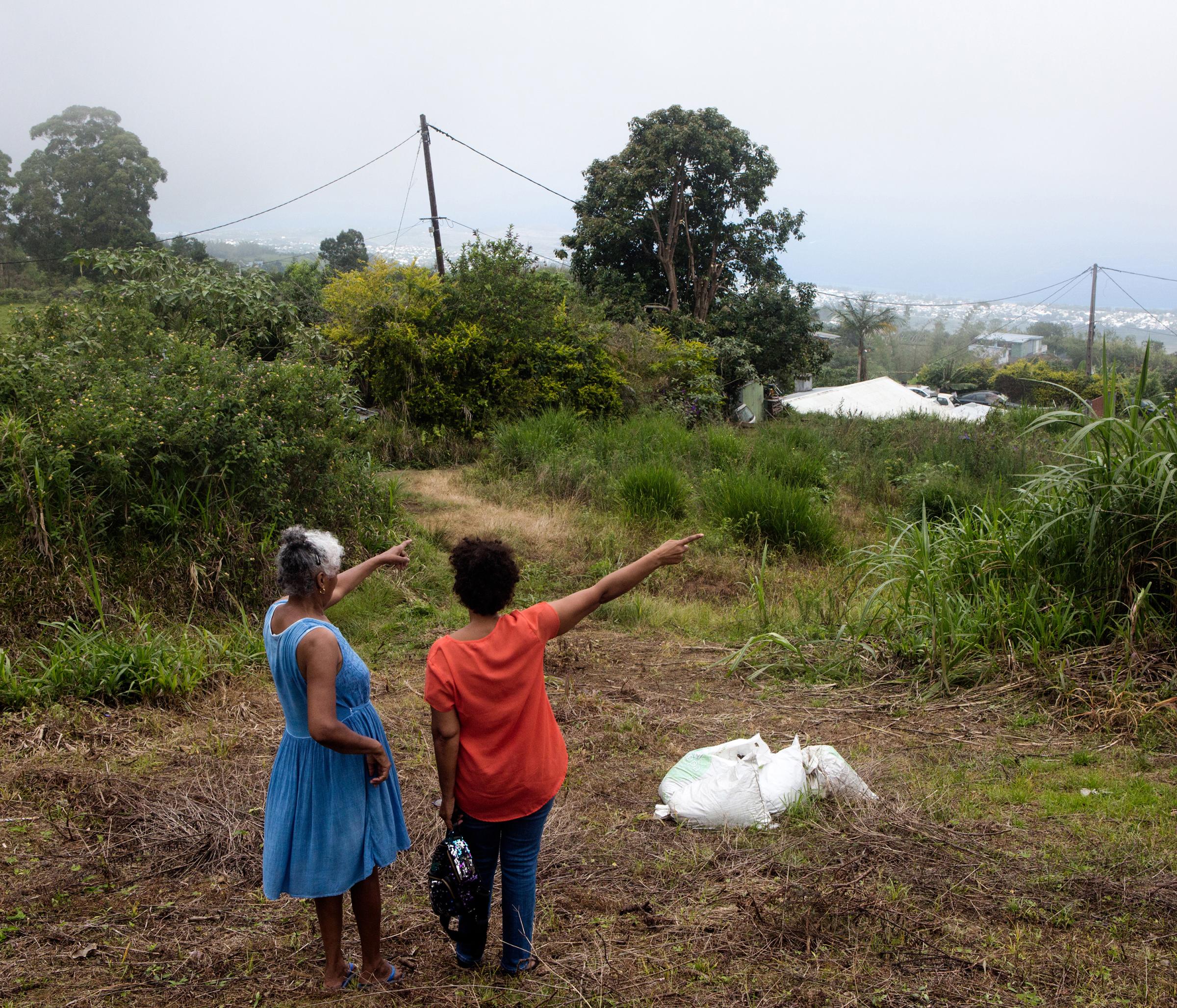
Valérie est à la recherche de la maison où elle est née dans les hauts de St Paul sur l’île de La Réunion Valérie est partie de La Réunion pour la métropole alors qu’elle était à la pouponnière de St Denis avec le numéro de matricule 659. Valérie me dit: "ne plus avoir aucun souvenir de son enfance, seulement des flashs durant l’avion qui l’a amené en métropole. Après un bref passage au foyer de Guéret, puis une 1ère famille d’accueil où elle a été battue et violenté, Valérie a été placé dans une seconde famille qui habité un petit village proche de Guéret. Elle a été adopté par cette famille l’âge de 7 ans. Durant son enfance elle n’a jamais su qu’elle avait été adopté malgré de multiples interrogations. C’est seulement à l’âge de 16 ans qu’elle découvre les papiers de l’adoption et c’est à partir de cet instant que beaucoup de ses questions trouvent une réponse. Elle découvre que ses frères et ses soeurs vivent comme elle à Guéret. C’est un grand choc pour elle: « j’ai du les croiser de nombreuses fois sans savoir qu’il était de ma famille ».
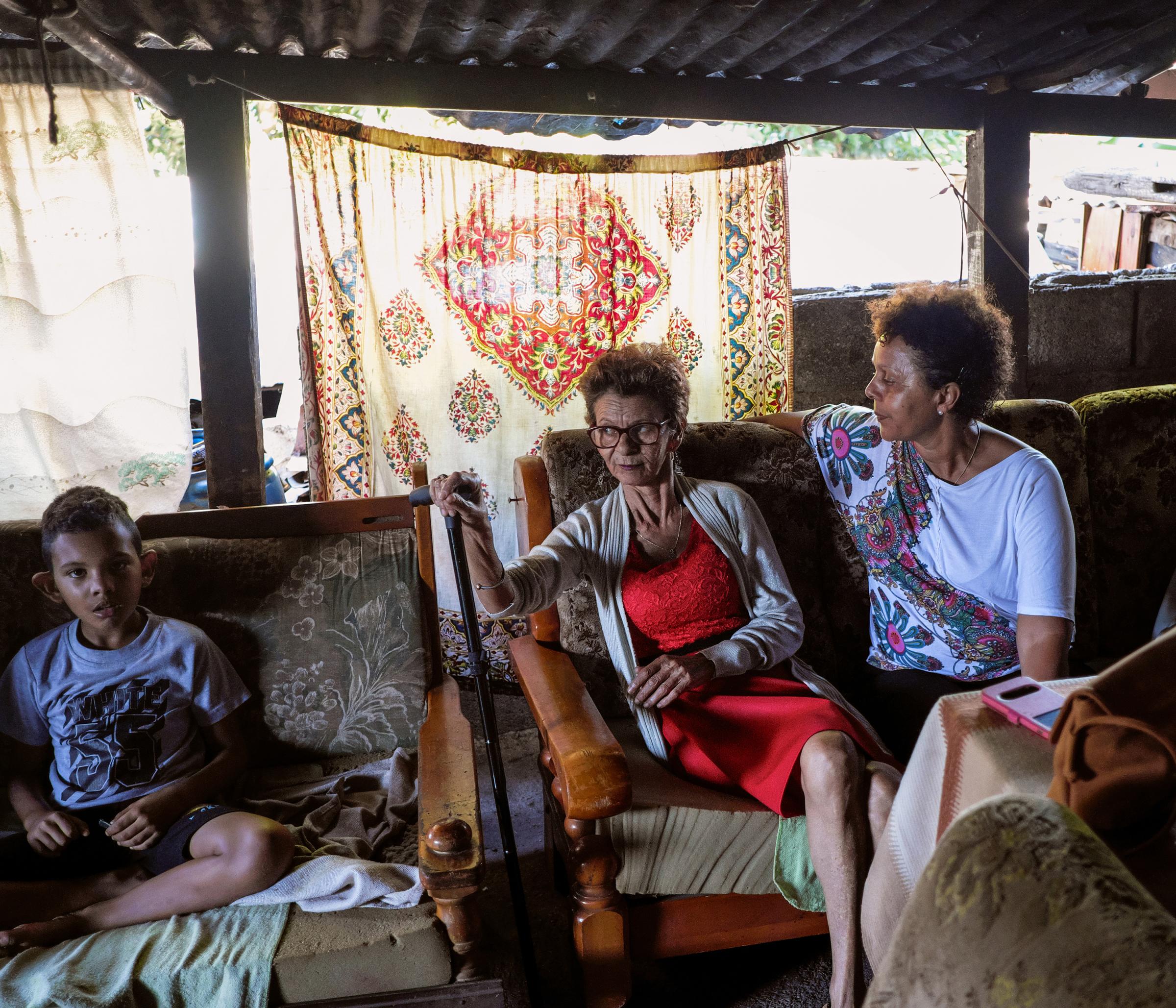
Valérie a repris contact avec une de ses cousines qui habite dans les hauts de St Paul sur l’île de La Réunion. Par la suite elle arrive à refaire le contact avec ses frères et soeurs et décide de revenir pour la 1ère fois à la Réunion en 1991 avec eux. Les choses ne se passent pas comme elle le souhaite. C’est seulement à l’âge de 43 ans que Valérie sent qu’il faut que: « je retourne vers mes racines, que je refasse le puzzle de ma vie ». Elle obtient une mutation de la fonction est reste 9 ans sur l’île avant de repartir et d’aller s’installer dans le sud de la France. Durant ces 9 ans Valérie n’a de cesse d’être en quête de ces origines. Elle ne trouve malheureusement peu de chose même si elle retrouve une partie de sa famille.
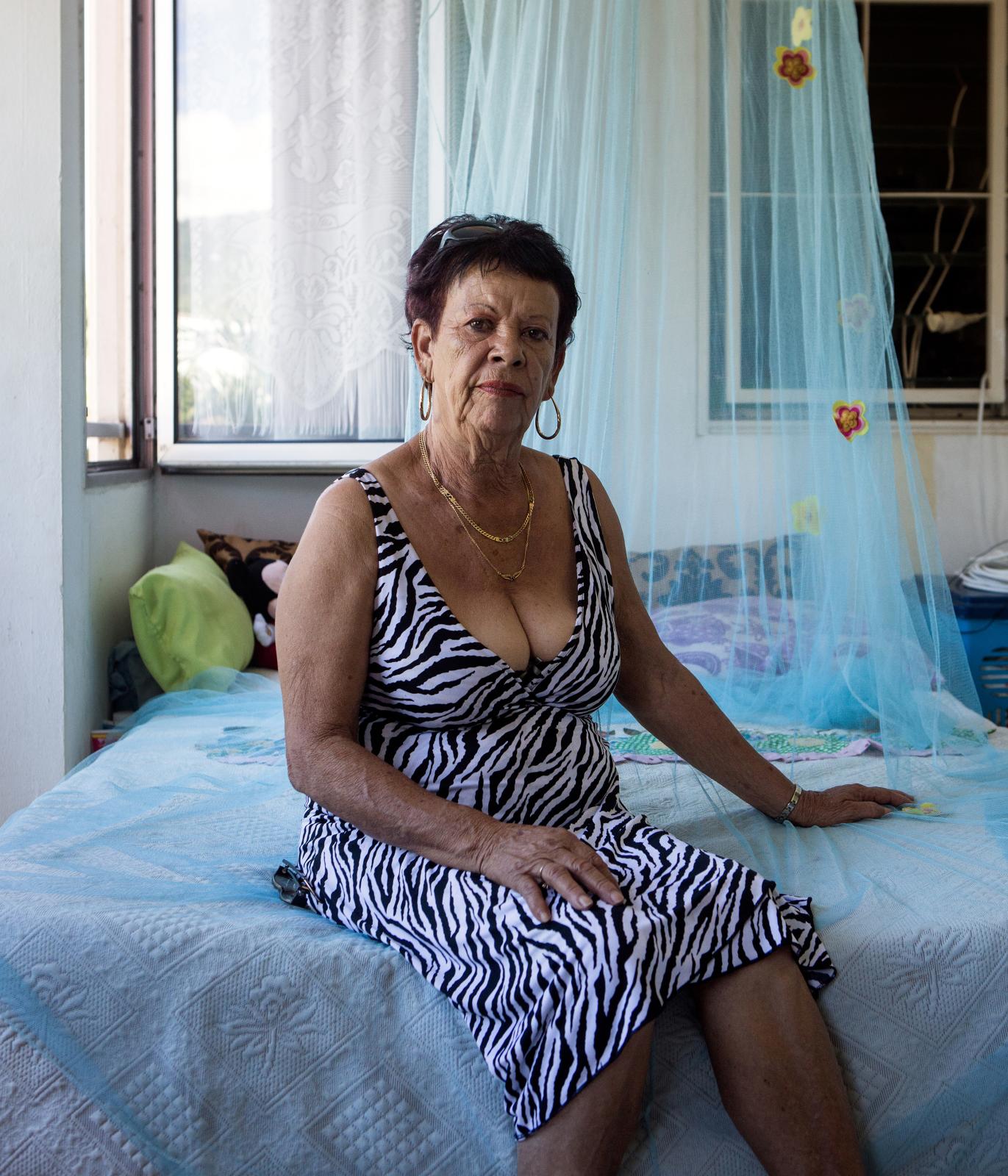
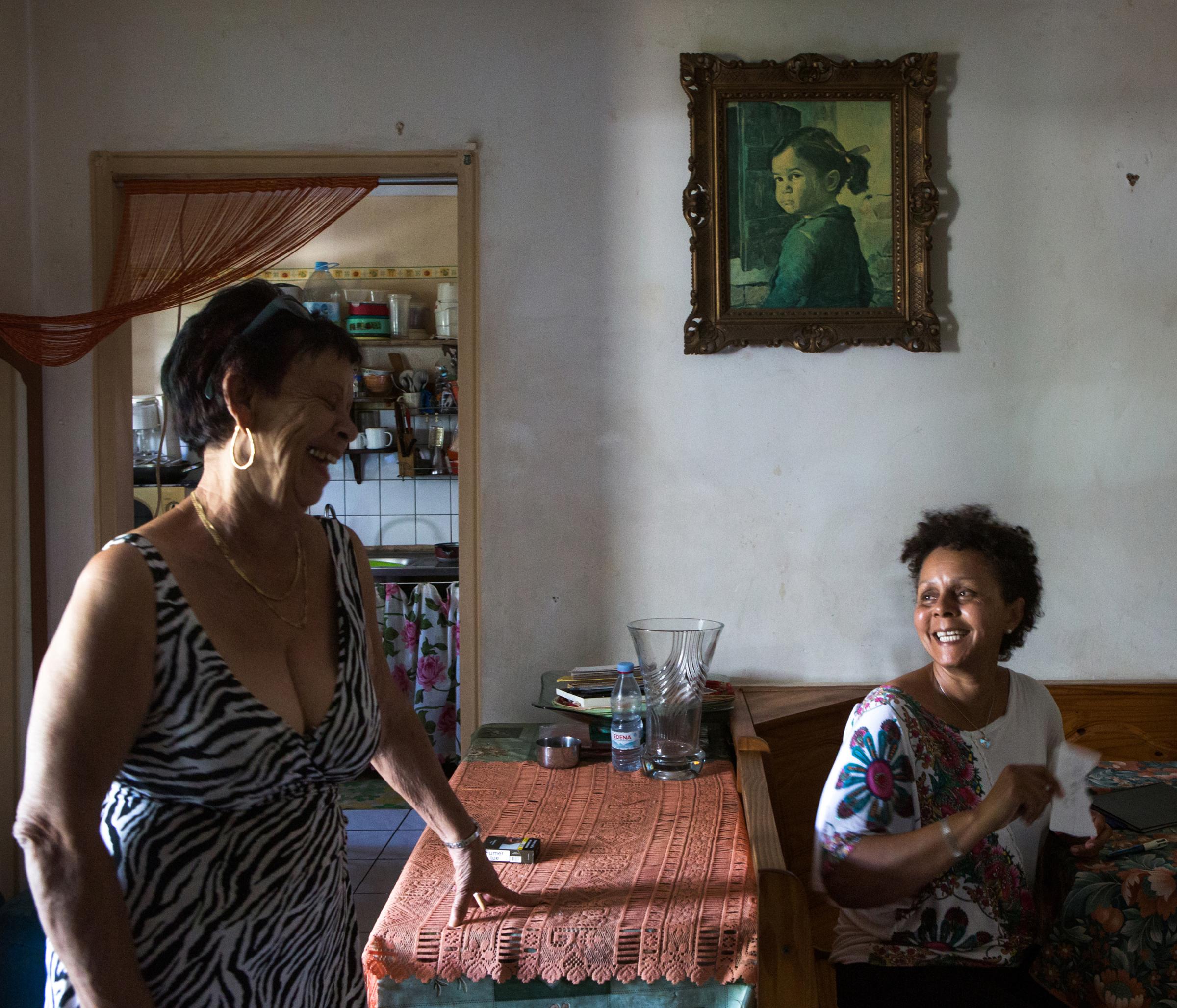
Valérie retrouve une de ses cousines qui habite à St Denis sur l’île de La Réunion.
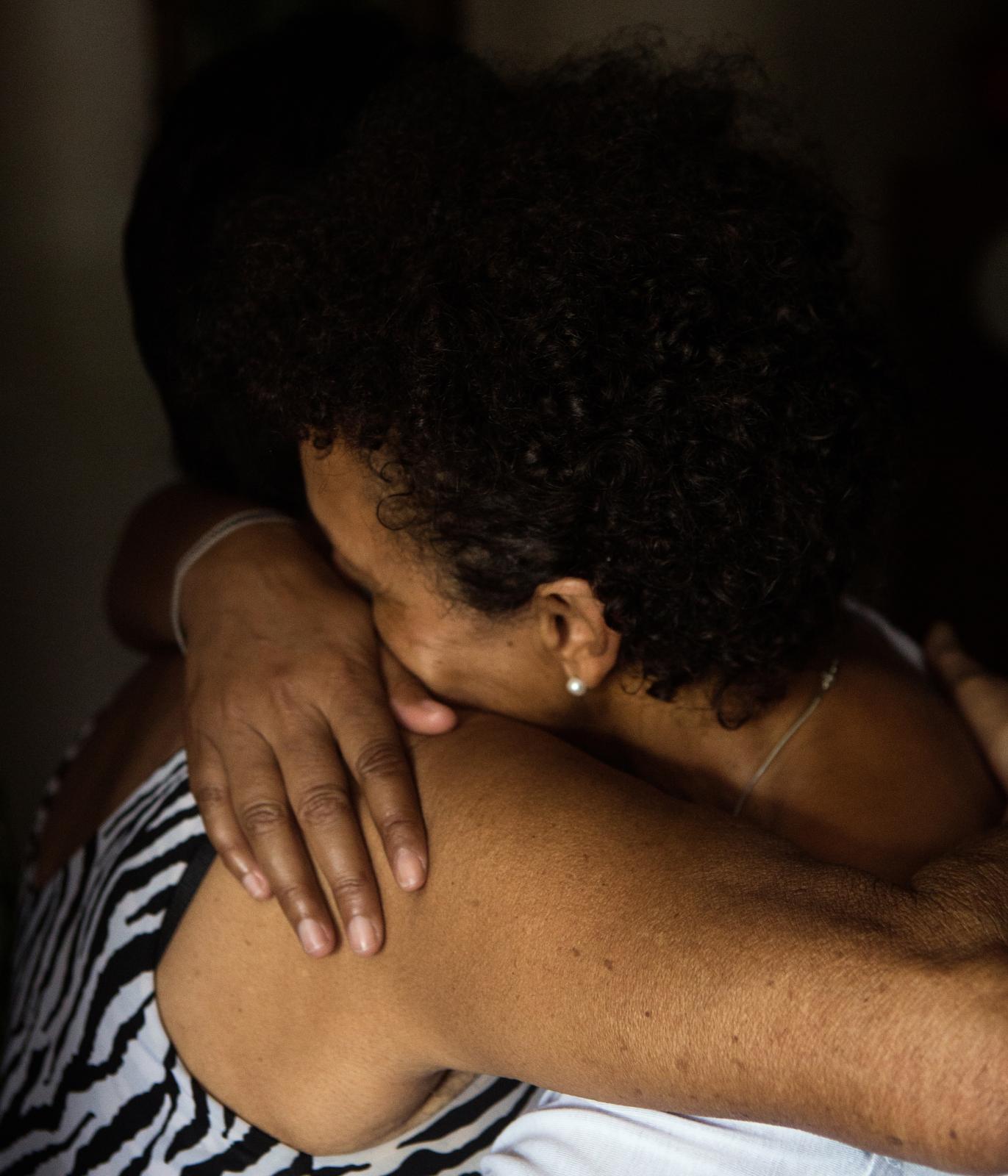
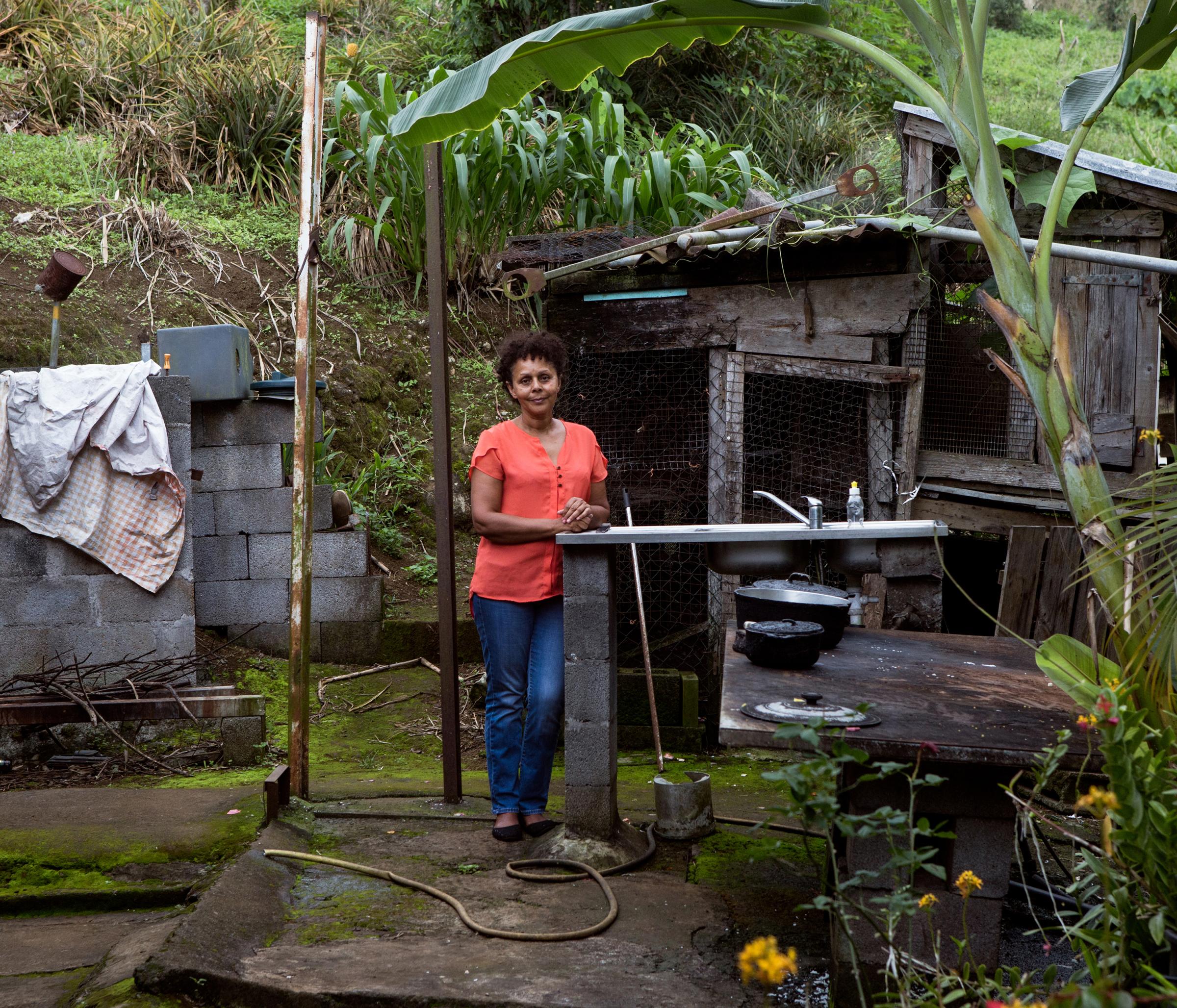
Portrait de Valérie dans la cour de la maison où elle est née dans les hauts de St Paul, Ile de La Réunion. Valérie est aujourd’hui très investie dans une association qui luttent pour redonner « une histoire à tout ces enfants ». Elle revient le plus souvent possible à la Réunion pour retrouver ses origines. Dernièrement après des années de demande elle a obtenu son acte de naissance, elle sait aujourd’hui que sa mère est décédée mais elle ne connait toujours pas son père.
Untitled
#Culture
Public Project
Untitled
Copyright
Morgan Fache
2025
Updated Apr 2022
Topics
Culture
3,225
